Choose your language

Getting Around

Entry to Cuba: Visas & Travel Requirements
Traffic by the Capitol building, Havana
Photo: Shutterstock
Stay updated with the latest travel information for your trip to Cuba!
Embarking on a journey to Cuba? Here's your guide to the latest visa requirements and travel protocols. Whether you're coming from North America, Europe, or elsewhere, we've got you covered.
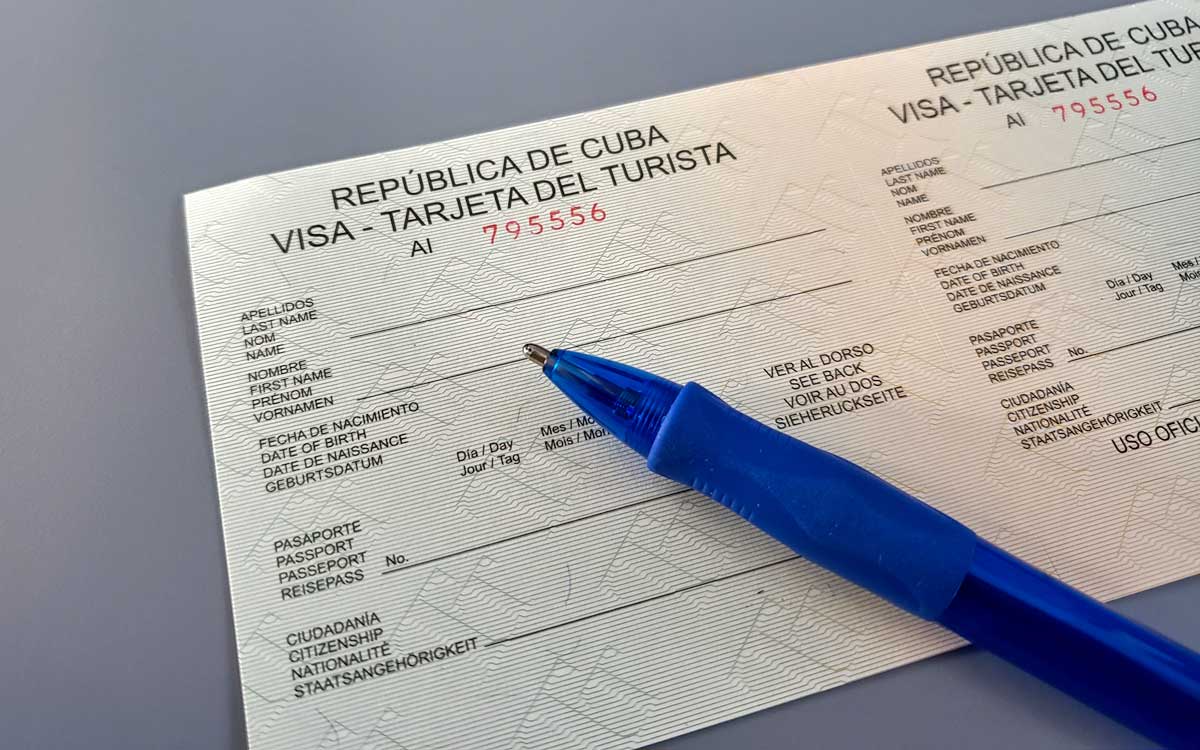
Cuba visa application form
What are the visa and entry requirements to Cuba?
US Citizens
Planning a trip to Cuba as a US citizen? There are special regulations you need to be aware of. While tourism trips to Cuba aren't yet authorized, general licenses have been issued for a variety of travel categories. If you meet the requirements of the general license under which they plan to travel, you won't need to apply for another permit from the OFAC (Office of Foreign Assets Control of the Treasury Department) for your trip.
However, it's important to note that the US Embassy in Havana and the State Department in Washington D.C do not process visa applications for trips to Cuba. If you need to apply for a visa or have any questions regarding your specific case, you should contact the Cuban Embassy in Washington D.C.
And remember, certain activities may not be allowed, so it's best to check with the US embassy for information on organizations or businesses in Cuba that U.S. citizens are not allowed to engage with due to economic sanctions or other legal restrictions.
Canadian Citizens
As a Canadian citizen, you'll need a valid passport for the duration of your stay in Cuba. Make sure your passport's expiration date isn't near to avoid any travel hiccups. Depending on your trip's purpose, you may need different types of visas. If you're traveling as a tourist, you'll need a tourist visa, which can be obtained from tour operators, airlines, or a Cuban government office in Canada.
European Citizens
If you're a European citizen planning to travel to Cuba, remember that visa protocols can vary depending on your country of residence. For most European citizens, a valid passport is required during your stay in Cuba. Some countries, like Spain, require the passport to be valid for at least 6 months.
It's also important to note that if you plan to travel to the United States after visiting Cuba, you'll need a visa. This is because the electronic system for travel authorization (ESTA) is not sufficient for those who have traveled to Cuba before. This visa must be obtained at the Consulate General of the US Embassy in your place of residence.
Given the varying requirements, it's a good idea to contact your tour operator or travel agency to understand the specific visa requirements for your travel.
Latin American Citizens
For Latin American citizens, a valid passport is required during your stay in Cuba. You'll also need to obtain a tourist visa or tourist card for your trip. This can be processed at tourism agencies or airlines, which usually handle its issuance.
The visa is generally issued for about 90 days and can then be extended. It's also important to note that you should have travel insurance with medical coverage.
Visa Costs: What to Expect
Visa costs can vary depending on where it's issued. Generally, prices range between $20 and $80. If you apply online, additional charges may apply, and prices can range from $110 to $150.
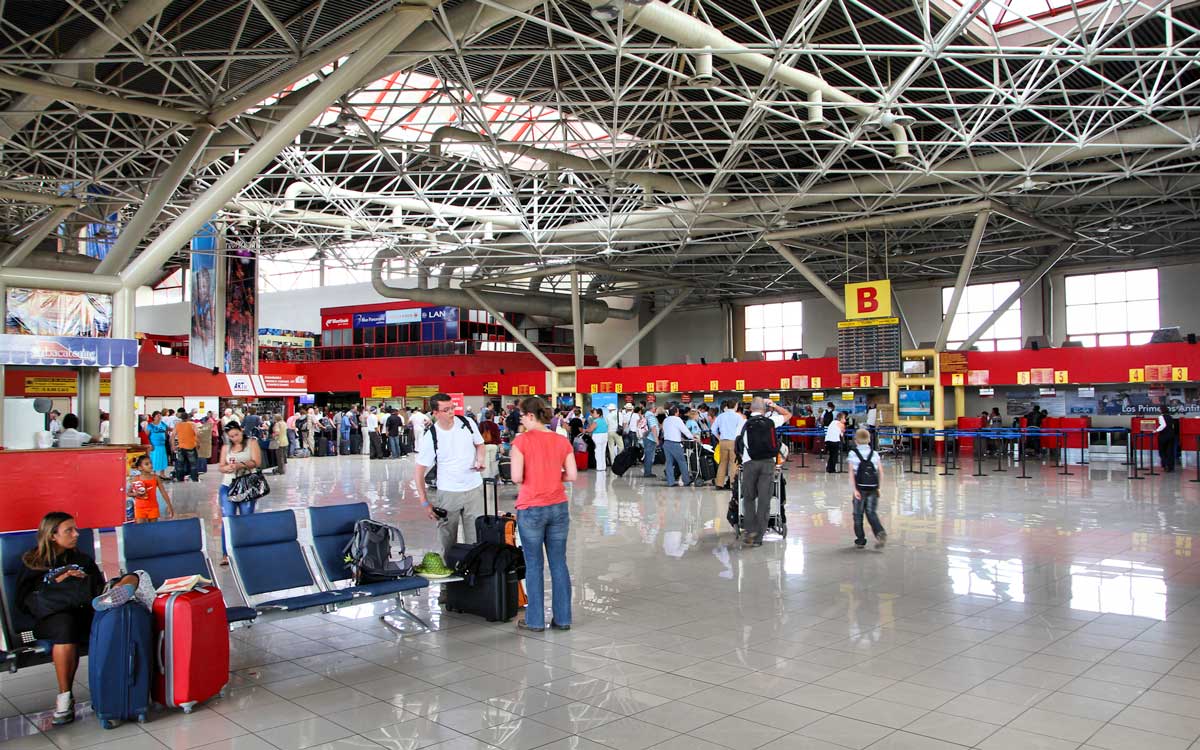
Jose Marti International Airport in Havana
What items can I bring to Cuba?
When packing for your trip to Cuba, you can bring personal effects, including personal phones and computers, free of charge. The range of objects you can bring to Cuba is quite wide, from musical instruments to televisions. However, some items may be subject to charges depending on Customs regulations.
Some items can be brought into the country without having to pay any import taxes. These include used personal objects, art and literature books, music discs, manufactured pharmaceutical products, and wheelchairs, among others.
However, it's crucial to be aware of prohibited items. While some of these, like explosives, drugs and narcotics, and blood derivatives, may seem obvious, others might surprise you. For instance, literature, articles or objects that are considered obscene, pornographic or that attack the general interests of the nation are also prohibited.
If you attempt to bring into the country articles that are not allowed for import, the General Customs of Cuba can exercise administrative sanctions. This means that Customs can seize those imported articles whose entry is prohibited in Cuba, as well as products that have been entered with a fraudulent declaration.
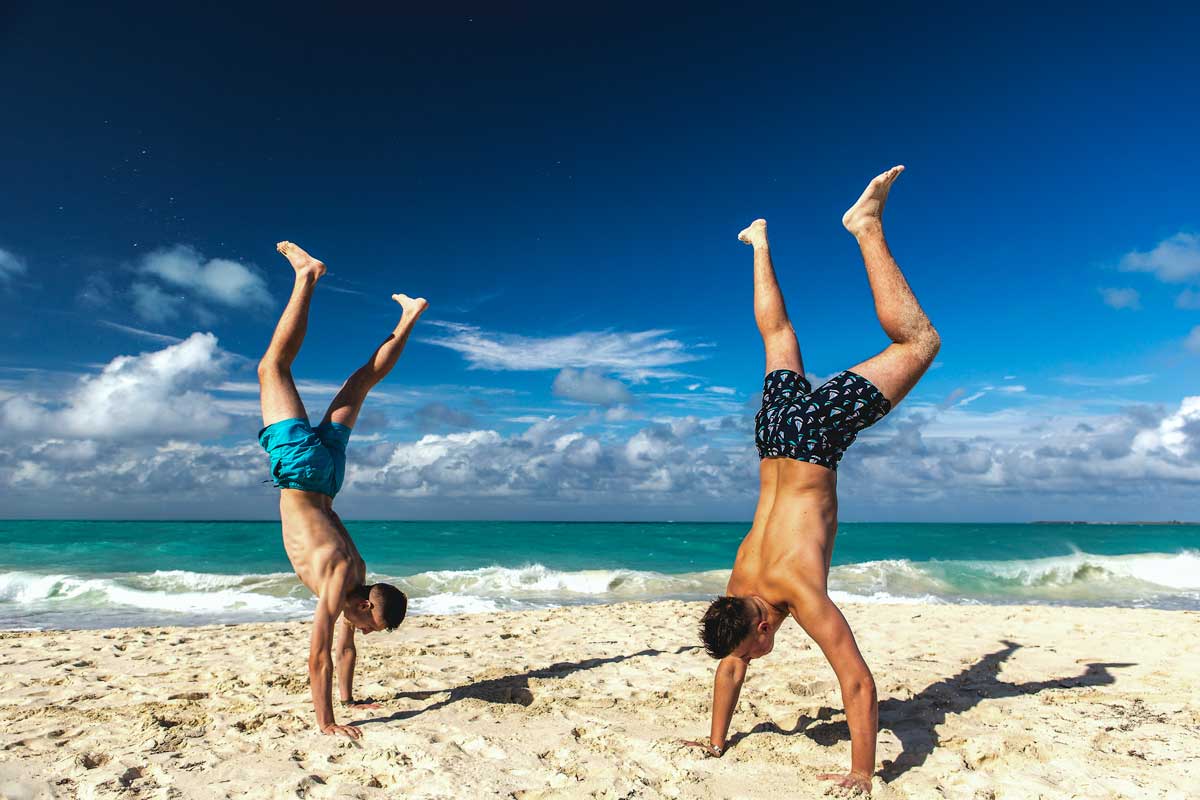
Travelers on a beach in Varadero
Photo: Unsplash
Health and Vaccinations
Before you embark on your journey to Cuba, it's important to ensure you're up to date with routine vaccines. This includes vaccines against chickenpox, tetanus, influenza, rubella, and polio. In the current climate, being vaccinated against COVID-19 is also essential.
Additionally, consider getting vaccinated against Hepatitis A and Hepatitis B. If your trip to Cuba includes exploring nature or venturing into rural areas away from the city center for activities such as outdoor camping, the rabies vaccine is also recommended. Travelers are also advised to consider the typhus vaccine.
Can I bring my pet to Cuba?
If you're planning to bring your pet to Cuba, there are a few requirements you need to meet. Make sure your pet has the necessary vaccines and an official health certificate. You'll also need to request a travel certificate for your pet from the Consulate or Embassy of Cuba in your country.
Written by Teresita Padrón .
Published July 2023.
Explore Top Destinations in Cuba
The landscape of cuba: topes de collantes.
Enter and Explore Topes de Collantes. Home to amazing waterfalls
Castillo del Morro: A Historical Fortress in Havana
Learn about the History of Cuba in the bay of
Find Hidden Oases in Havana’s Parks & Gardens We Love
Explore the lesser-known parks and gardens of Havana and dive
Step Back in Time at Finca Vigía – Hemingway’s Home in Cuba
Visit the Ernest Hemingway home in Cuba that attracts followers
Greatest Waterfalls in Cuba
Let the crystalline waters of the greatest waterfalls in Cuba
Cuba’s Top Destinations For Your Next Mountain Bike Adventure
Get to know the 5 best spots for mountain biking
Best Spots for Fishing Around Cuba
Largely untouched and diverse, Cuba is one of the most
Explore Cienfuegos With Our Handpicked Activities Just for You
Discover top activities and things to do in Cienfuegos (according
Where to Drink in Havana: Our Essential List of the Best Bars
Explore our essential list of the best bars in Cuba,
City Guide: Cienfuegos
Cienfuegos is a picturesque coastal town with laid back charm
Subscribe to our newsletter
Get more travel inspiration, tips and exclusive offers sent straight to your inbox
I would like to get Visit Cuba newsletters in my inbox
Paradise for Your Inbox


The Cuba Tourist Visa Application Form Explained.
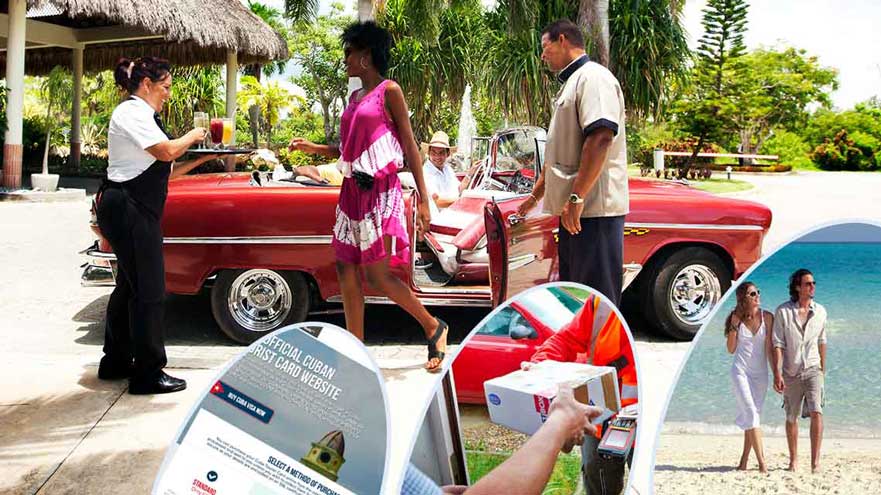
This article explains the information you should have at hand when completing the Cuba Tourist Visa Application Form online at VisaCuba.com, eligibility criteria, and some additional common questions concerning the application process and delivery of your Cuba Tourist Card
APPLY FOR YOUR CUBA TOURIST VISA
Standard Service Priority Service International Delivery
Who needs to fill out the Cuba Tourist Visa Application Form?
Everyone travelling to Cuba for tourism purposes needs to complete the Cuba Tourist Visa Application form at visacuba.com.
UK passport holders and EU citizens are required to purchase a tourist card in order to clear Cuban customs at the point of entry (airport, ports, etc.)
A few nationalities are exempt from Cuban visas, which appear listed on the FAQs section of our website .
The Cuba Tourist Visa Application Form is for tourism only . If you are travelling as a journalist, on business, to visit family or any other category you should not use Visa Cuba’s ä Application form. Instead, the Cuban consulate should be contacted for more information and appointments.
Is the Tourist Visa Application Form online only?
The safest and fastest way to complete the Cuba Tourist Visa Application Form in online from our website – visacuba.com.
However, if you’d like to apply in person, feel free to make an appointment and visit our offices in Crystal Palace (Foresters Hall, 25-27 Westow Street, London, SE19 3RY)
If you are having difficulties completing the tourist card application form on a computer and travelling to London is not an option, we’d recommend you seek assistance from a family member, friend, or trusted colleague as we are unable at this time to use printed copies of the tourist card application forms or receive payments for our service over the phone.
Is everyone eligible to apply online at visacuba.com?
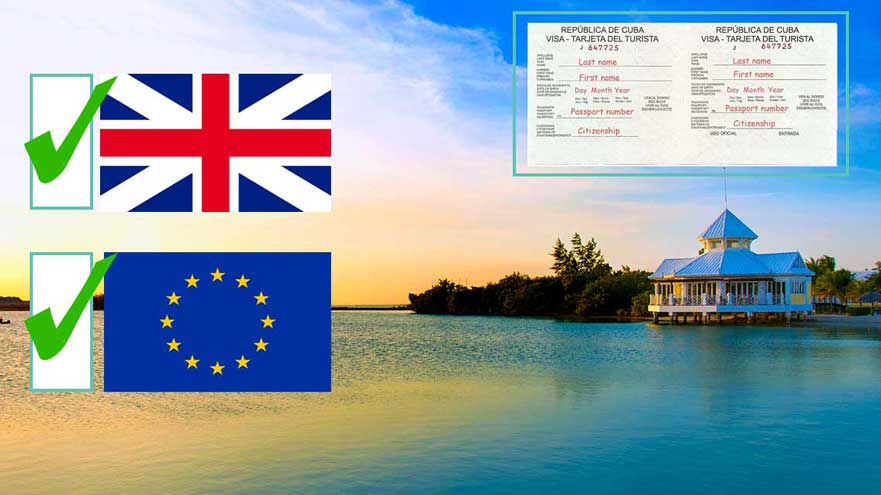
Almost everyone. We are unable to provide visas to passport holders of the following countries: Afghanistan, Algeria, Bangladesh, Cameroon, Egypt, Eritrea, Ethiopia, Ghana, Guinea, India, Iran, Iraq, Kenya, Libya, Nepal, Nigeria, Pakistan, Philippines, Sierra Leone, Somalia, Sri Lanka, Syria, Tunisia, USA, Yemen and natives of the Fujian Province.
Information you should have at hand to complete the Cuba Tourist Visa Application Form
The Cuba Tourist Visa Application form is very simple and straightforward. The following information should be provided to us for every person travelling to Cuba with you, including infants.
Here’s the information we’ll need to process and deliver your Cuban Visa:
1. Your personal details, as they appear in your passport
- Date of Birth
- Citizenship
- Country of Residence
- Passport Number
This is the information we need to validate your eligibility to obtain a Cuba Tourist Visa
2. Your departure date
This information we need essentially to determine how soon you need your Tourist Card delivered to your designated address. For instance, if you are travelling within the next two weeks and chose our standard service, the risk of you not getting the visa on time is too high, therefore our system will upgrade you to priority service automatically.
3. Delivery Options
Your Cuba Tourist Card will be delivered via Royal Mail. We provide our clients several delivery options:
- Royal Mail First Class, which is included on our price and takes about a week to reach you (usually less than that)
- First Class Signed For, which costs £2 but allows you to track your delivery and requires a signature for the visa to be delivered.
- Special Delivery, which costs £7 but ensures you receive your Cuba Visa the next working day.
International deliveries are handled by DHL and cost £40 Or you can choose at this stage our Office collection service. If you choose this option, you’ll need to get in touch with us to arrange a suitable collection time and date.
4. Billing Address, only if different from the delivery address.
5. payment details, which are safely processed by reputed provider paysafe., apply for your cuba tourist visa, how soon will i receive my cuba tourist card after completing the cuba tourist visa application form .
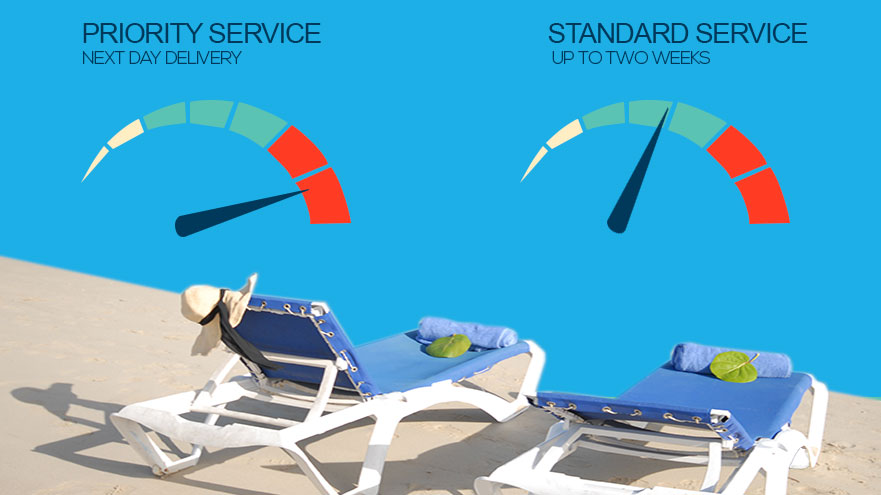
Depending on how soon you’ll need your Cuba Tourist Card, you can choose two levels of service:
Standard . We aim to process your application and post your tourist card within five days.
Priority : We process and post your application on the same day, provide your Cuba Tourist Visa Application Form reaches us before 2pm on a working day (Mon-Fri)
Then you can choose how fast you’d want your delivery:
First Class, and First Class Signed For typically take up to 7 days for the Tourist Card to reach you.
With Special Delivery, you’d receive your Tourist Card on the next working day following your application.
For office collection, it is often up to how soon you can come to our office. Exceptionally we might not be able to confirm your chosen date, but more often than not we are available and happy to help.
For international deliveries is a bit trickier to calculate. You should check DHL’s website for estimated delivery times between the UK and your country of residence.
The table below can help you calculate the most convenient option based on price and processing and delivery times:
Can I apply for multiple entries using this Cuba Visa Application Form?
Cuban Tourist Cards are single-entry, valid for stay of up to 30 days in Cuba. So, if you are entering, then leaving, then returning to Cuba, you must purchase a Cuba tourist card for each individual entry into Cuba.
For instance, you’ve booked a holiday to Cuba and Costa Rica with a tailor-made holiday specialist like cubadirect.co.uk . You’ll spend 3 days in Havana, then head to Costa Rica for 7 nights, then back to Cuba.
In this case, you must apply and obtain two Cuba Tourist Cards. One for each entry.
If you travel to Cuba and for any reason need to stay more than 30 days, you can request an extension locally for a further 30 days. But only once.
SELECT A TYPE OF VISA
Select the type of visa you will need. Pink visas are required for those travellers beginning their journey in the US to Cuba . For those who travel from the Rest of the World to Cuba , they must opt for a green visa .
Choose this option if you are arriving from any country, except the USA

Choose this option if you are travelling to Cuba from or via any US airport
YOUR CUBA VISA FROM OFFICIAL PROVIDERS
Visa Cuba is not only official partners with the Cuban Consulate. We are the UK’s oldest and best reviewed Cuba Visa application service. We take pride in our flawless review record with independent review services. No fake news. Only authentic reviews from verified customers
- Process and Delivery
- Terms of Use
- Privacy Policy

- How to Fill Out the Cuba Visa Tourist Card - Tarjeta del Turista
Filling Out a Cuba Visa Tourist Card - Tarjeta del Turista
If you have a trip to Cuba coming up, you are likely gathering all the documents you need to enter the country seamlessly. Travelers to Cuba require a visa, also known as a Cuban Tourist Card. If you are flying from the USA, the U.S. air carrier will have these visas available for sale in the boarding area, at a price ranging from $50-$100. It’s also legal to fly through another country like Canada or Mexico. In that case you can also obtain the visas at the airport. For your convenience, Cuba Unbound is also able to provide these for a fee.
Below is a photo of the “Visa – Tarjeta del Turista.” Read this carefully because if you make a mistake, you will have to purchase another visa.
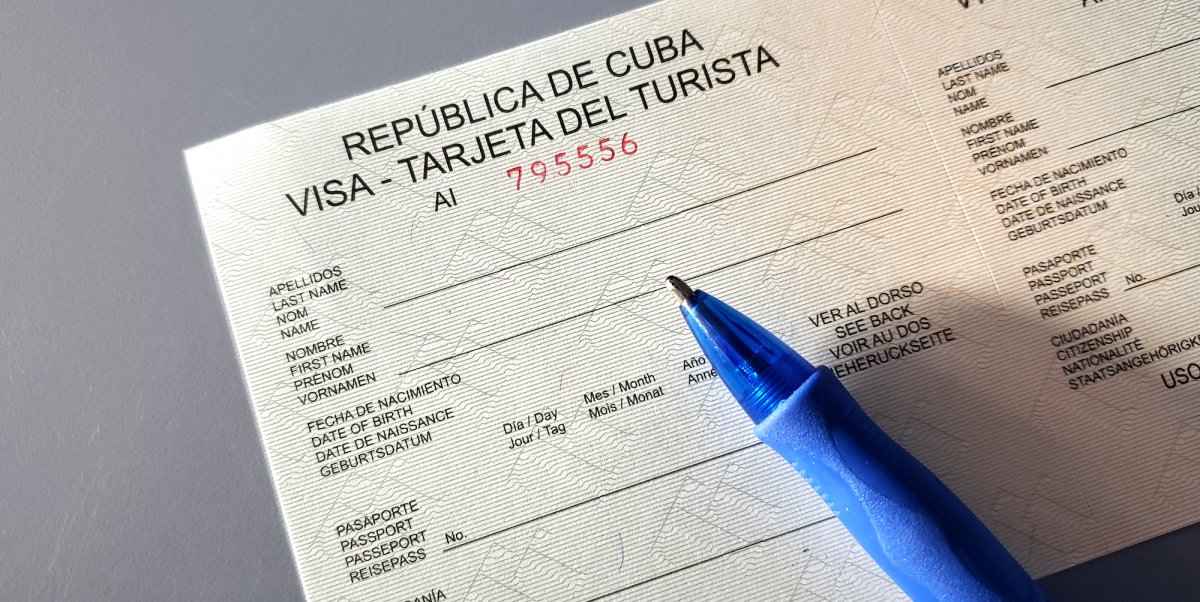
A step by step guide to filling out a Cuban tourist visa card - Tarjeta del Turista:
*Please note that you will need this tourist visa to enter and leave Cuba.
Fill out your last name on the first line.
Fill out your first name on the second line.
Fill in the requested information such as date of birth above the indicated space for day, month, and year.
Fill in your passport number
For citizenship, citizens of the United States should just put “USA”
*Note: If you make a mistake on the left side, and it is minor, just repeat in the same on the right side.
On the back you will see a stamp from ROW Sea Kayak Adventures. This is our company that has an agreement with the Consulate of Cuba to purchase these tourist cards.
Full List of Cuba Entry Requirements
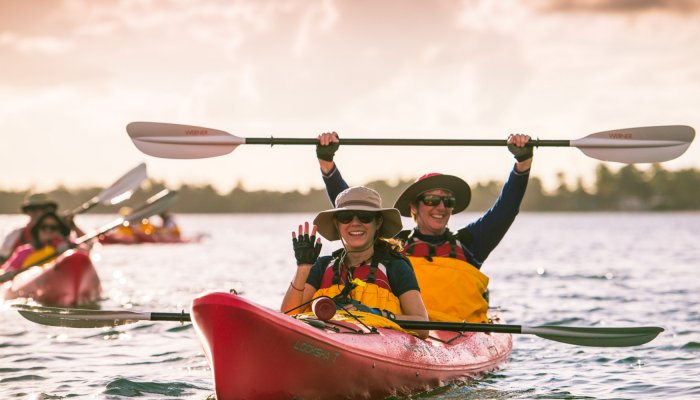
Cuba Unbound - Signature Tour

Cuba Walking Tour
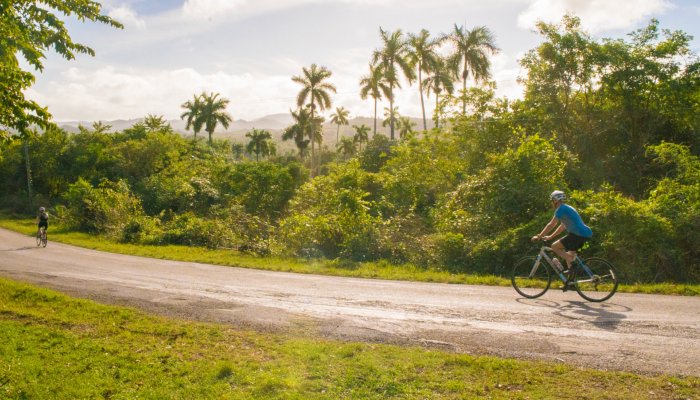
Central Cuba Bike Tour
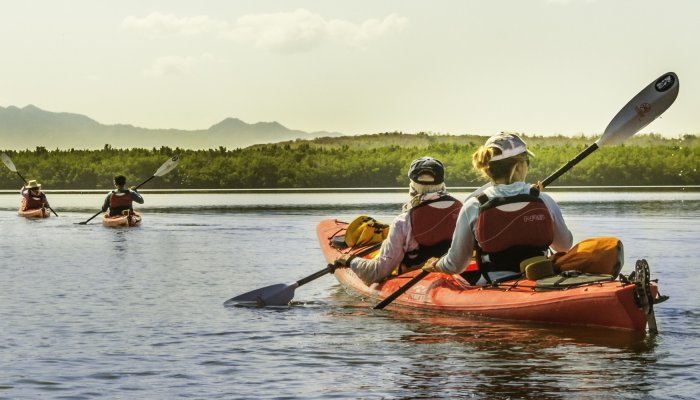
Cuba Multisport Tour
Winter is here! Check out the winter wonderlands at these 5 amazing winter destinations in Montana
- Travel Destinations
Travel To Cuba: How To Get A Visa As An American
Published: September 6, 2023
Modified: January 3, 2024
by Diahann Herold
- Hotel Reviews
- Plan Your Trip
- Travel Guide
- Travel Tips
- Travel to Cuba
Introduction
With its rich history, vibrant culture, and stunning landscapes, Cuba has become an increasingly popular travel destination for Americans. However, due to certain travel restrictions, planning a trip to Cuba can be a bit more complicated for American citizens compared to other destinations. One of the key factors to consider when traveling to Cuba is obtaining a visa.
In the past, travel to Cuba was heavily restricted for Americans, but in recent years, the regulations have been eased, allowing more people to visit the island. However, it’s important to note that there are still specific categories under which Americans can travel to Cuba legally.
In this article, we will provide an overview of the different types of visas available for Americans traveling to Cuba. We will also guide you through the process of applying for a visa, depending on the purpose of your visit. Whether you’re planning a leisure trip or an educational experience, understanding the visa requirements for Cuba will help ensure a smooth and hassle-free journey.
So, if you’re ready to embark on your Cuban adventure, read on to discover the various types of visas and how to obtain them as an American traveler.
Overview of Travel to Cuba for Americans
Traveling to Cuba has become increasingly accessible for Americans in recent years, thanks to relaxed travel restrictions. However, it’s important for American citizens to be aware of the specific regulations and requirements when planning a trip to this beautiful Caribbean island.
Historically, travel to Cuba from the United States was heavily restricted due to political tensions between the two nations. However, in 2014, the Obama administration announced a series of measures to normalize relations with Cuba, which included easing travel restrictions for Americans.
Under the current regulations, Americans can travel to Cuba for specific purposes, such as tourism, education, people-to-people exchanges, support for the Cuban people, cultural exchanges, and religious activities. It is crucial to ensure that your travel plans fall within one of these categories to comply with the U.S. government’s requirements.
It’s important to note that while travel to Cuba has become more accessible, there are still some limitations. For example, travelers are required to maintain a full-time schedule of activities related to their approved purpose of travel and should keep appropriate records of their activities while in Cuba. Additionally, American visitors are prohibited from engaging in certain transactions, such as staying in certain government-owned accommodations or conducting business with certain entities on the island.
While these regulations may seem complex, the experience of traveling to Cuba is well worth the effort. From exploring the vintage charm of Havana to relaxing on pristine beaches, Cuba offers a unique blend of history, culture, and natural beauty. By familiarizing yourself with the specific travel requirements, you can ensure a smooth and enjoyable experience during your visit.
In the following sections, we will delve deeper into the different types of visas available for Americans traveling to Cuba. Whether you’re planning a leisure trip, an educational experience, or a cultural exchange, understanding and obtaining the appropriate visa will be essential to ensure compliance with the regulations and make the most of your time in Cuba.
Types of Visas for Travel to Cuba
When it comes to traveling to Cuba as an American citizen, there are several types of visas that you can apply for. These visas are specifically designed to align with the approved travel categories outlined by the U.S. government. Let’s take a closer look at each of these visas:
This type of visa allows Americans to visit Cuba for leisure and tourism purposes. While tourism to Cuba by Americans technically remains restricted, the U.S. government allows authorized travel to engage in people-to-people exchanges and support for the Cuban people, which can still encompass many tourist activities.
For those interested in pursuing educational opportunities in Cuba, educational visas are available. This category includes activities such as attending classes, workshops, or conferences, or participating in research projects in collaboration with Cuban institutions or organizations.
This visa category allows Americans to engage in educational exchanges between individuals or groups in the United States and Cuba. It encourages meaningful interactions with the Cuban people, promoting a deeper understanding of their culture, history, and daily lives.
Under this visa category, Americans can travel to Cuba to support the Cuban people through various types of activities. This can include staying in privately-owned accommodations, dining at privately-owned restaurants (paladares), and engaging in interactions with local entrepreneurs and artists.
If you’re interested in participating in cultural exchange programs, this visa category is the one for you. It encompasses activities such as art exhibitions, music festivals, theater performances, and other cultural events or projects.
For religious practitioners or those interested in engaging in religious activities, there is a visa category specifically for this purpose. This can include attending religious services, participating in religious ceremonies, or volunteering for religious organizations in Cuba.
Each visa category has specific requirements and guidelines that must be followed to obtain the visa. Understanding the purpose of your travel and choosing the appropriate visa is crucial to ensure compliance with U.S. regulations and make your trip to Cuba a seamless and memorable experience.
Tourist Visas
Traveling to Cuba for tourism purposes is still technically restricted for American citizens. However, the U.S. government allows authorized travel under the categories of people-to-people exchanges and support for the Cuban people, which can encompass many tourist activities.
To visit Cuba as a tourist, you will need to apply for a Cuban Tourist Visa, also known as a “Tarjeta del Turista” or “Tourist Card”. This visa allows you to stay in Cuba for up to 30 days and can be extended for an additional 30 days while you are in the country.
Obtaining a Tourist Visa for Cuba is relatively straightforward, and there are a few different ways to acquire one:
- Through an airline or travel agent: Many airlines and travel agents offer Tourist Visas as part of their service when booking flights to Cuba. They will provide you with the necessary forms and guidance on how to fill them out correctly.
- Embassies or Consulates: You can also apply for a Tourist Visa directly through the Cuban Embassy or Consulate in your country of residence. Contact the embassy or consulate for specific instructions and the required documents.
- Third-party visa services: There are various third-party visa services that can assist you in obtaining a Cuban Tourist Visa. These services can be found online and will guide you through the application process.
When filling out the Tourist Visa application, you will be required to provide basic personal information, such as your name, date of birth, passport details, and intended dates of travel. Make sure to double-check all the information before submitting your application to avoid any delays or complications.
It’s important to note that as a tourist, you are required to maintain a full-time schedule of activities that fall within the authorized travel categories. This could include engaging in people-to-people exchanges, supporting the Cuban people through interactions with local entrepreneurs, or participating in cultural events. It’s advisable to keep a record of your activities and retain any related receipts or documentation.
It’s also essential to be aware of the prohibited transactions while in Cuba. As an American traveler, you should avoid conducting business with certain government-owned entities and staying in government-owned accommodations. Private bed and breakfasts (casas particulares) and privately-owned restaurants (paladares) are excellent alternatives for accommodations and dining.
By obtaining a Tourist Visa and being mindful of the authorized travel categories and prohibited transactions, you can make the most of your trip to Cuba while complying with the U.S. government’s regulations.
Educational Visas
If you’re looking to pursue educational opportunities in Cuba, such as attending classes, workshops, or conferences, you will need to obtain an Educational Visa. This visa allows American citizens to engage in educational exchange programs and academic activities on the island.
To apply for an Educational Visa, you will need to have a specific educational program or activity arranged in Cuba. This could include studying at a Cuban university, participating in a language immersion program, conducting research in collaboration with Cuban institutions, or attending a workshop or conference.
The process of obtaining an Educational Visa may involve the following steps:
- Identify an educational program: Research and select an educational program or activity in Cuba that aligns with your interests and academic goals. Ensure that the program is approved by the U.S. government and falls within the authorized travel categories.
- Apply to the program: Follow the application process provided by the educational program or institution in Cuba. You may be required to submit academic transcripts, letters of recommendation, and a statement of purpose.
- Receive acceptance and invitation: Once your application is accepted, you will receive an acceptance letter or invitation from the Cuban educational institution or program coordinator. This letter will be crucial for your visa application.
- Apply for an Educational Visa: Contact the Cuban Embassy or Consulate in your country to inquire about the specific requirements for obtaining an Educational Visa. You will likely need to provide the acceptance letter, proof of enrollment or participation in the program, and other supporting documents.
- Attend an interview (if required): Depending on the country and the circumstances, you may be required to attend an interview at the Cuban Embassy or Consulate. Be prepared to discuss your educational plans and provide any additional information they may require.
- Receive the visa: If your application is approved, you will be issued an Educational Visa, allowing you to travel to Cuba for the specified educational program or activity.
During your time in Cuba, it’s important to adhere to the rules and regulations of the educational program and engage in the approved academic activities. Maintain any necessary documentation related to your educational program, such as class schedules, certificates, or research project outlines.
Remember to also comply with the U.S. government’s regulations regarding prohibited transactions. Avoid engaging in business with certain government-owned entities and plan your accommodations and dining at privately-owned establishments.
By obtaining an Educational Visa and immersing yourself in the educational opportunities Cuba has to offer, you can broaden your knowledge, gain cultural insights, and have a truly enriching experience on the island.
People-to-People Visas
If you’re interested in engaging in educational exchanges and meaningful interactions with the Cuban people, a People-to-People Visa is the appropriate visa category for you. This visa allows Americans to visit Cuba for the purpose of connecting with individuals and groups in Cuba.
The People-to-People category was initially introduced as a way to foster cultural exchange and promote understanding between the people of the United States and Cuba. Under this visa, travelers have the opportunity to engage in a wide range of activities that involve direct interaction with the Cuban people.
To obtain a People-to-People Visa, you will need to plan and participate in activities that promote meaningful exchange and contact with Cubans. These activities can include attending cultural events, visiting community projects, interacting with artists and entrepreneurs, or participating in educational programs or workshops.
When applying for a People-to-People Visa, it’s crucial to carefully plan your itinerary to ensure that it aligns with the authorized travel category. As part of the application process for this visa, you may be required to submit a detailed itinerary that outlines your planned interactions and activities with the Cuban people.
While there is no specific visa application form for a People-to-People Visa, you will need to make sure that your travel falls within the U.S. government’s guidelines. It’s advisable to work with a travel organization or provider that specializes in people-to-people exchange programs, as they can help ensure that your activities are in compliance with the regulations.
During your visit to Cuba, it’s important to keep a record of your activities and any related documentation, such as event tickets, workshop participation certificates, or receipts from cultural activities. These records will serve as evidence of your compliance with the People-to-People Visa requirements.
It’s also important to be aware of the prohibited transactions and avoid engaging in business with certain government-owned entities. Opt for accommodations in privately-owned bed and breakfasts (casas particulares) and dine at privately-owned restaurants (paladares) to support the Cuban people directly.
By obtaining a People-to-People Visa and engaging in meaningful, educational, and cultural exchanges with the Cuban people, you can develop a deeper understanding of their way of life and contribute to the positive connections between the United States and Cuba.
Support for the Cuban People Visas
If you’re interested in supporting the Cuban people through your visit to the island, a Support for the Cuban People Visa is the appropriate visa category for you. This visa allows American travelers to engage in activities that directly contribute to the well-being and prosperity of the Cuban people.
The Support for the Cuban People category encourages interaction with local entrepreneurs, artists, and organizations and supports the growth of independent businesses and private initiatives in Cuba. By staying in privately-owned accommodations, dining at privately-owned restaurants (paladares), and engaging in economic and cultural exchanges, you can contribute to the development of the Cuban private sector.
To apply for a Support for the Cuban People Visa, you will need to plan a trip that aligns with the authorized activities of this category. Focus on engaging with the Cuban people and supporting independent businesses, as well as participating in activities that promote positive economic and cultural impact.
When applying for a Support for the Cuban People Visa, you will not fill out a specific visa application form. Instead, you will need to plan a detailed itinerary that includes activities and interactions that directly support the Cuban people. This can include visiting local markets, attending art exhibitions, collaborating with local artisans, or volunteering for community projects.
While there is no requirement to have your itinerary approved in advance, it’s recommended to keep a record of your activities, including dates, locations, and any receipts or documentation that can support your compliance with the Support for the Cuban People category.
During your visit to Cuba, it’s important to prioritize staying in privately-owned accommodations, such as casas particulares, instead of government-owned hotels. Similarly, choose to dine at privately-owned restaurants where possible to directly support local entrepreneurs.
Engage in conversations and interactions with the Cuban people to gain insights into their daily lives and encourage cultural exchange. Take the time to learn about their customs, traditions, and aspirations, and consider how you can contribute to their well-being or assist in their endeavors.
It’s crucial to remember that engaging in business transactions with certain government-owned entities is prohibited under the Support for the Cuban People category. Be mindful of this and seek out local independent businesses and entrepreneurs for your accommodations, dining, and other services.
By obtaining a Support for the Cuban People Visa and actively supporting the Cuban people through your visit, you can play a part in fostering economic growth, cultural understanding, and positive change on the island.
Cultural Exchange Visas
If you’re seeking a visa that allows you to immerse yourself in the vibrant culture of Cuba, a Cultural Exchange Visa is the ideal choice. This visa category enables Americans to participate in cultural events, festivals, exhibitions, and other activities that promote cultural exchange between the United States and Cuba.
With its rich history, music, dance, art, and literature, Cuba offers a treasure trove of cultural experiences. The Cultural Exchange category allows individuals to engage with the local artistic community, attend cultural events, and contribute to the preservation and celebration of Cuban culture.
When applying for a Cultural Exchange Visa, you will need to plan your itinerary to include cultural activities that fall within the authorized travel category. This can involve attending performances by Cuban musicians and dancers, visiting art galleries and museums, participating in workshops or classes, and interacting with local artists and artisans.
While there is no specific visa application form for a Cultural Exchange Visa, it’s advisable to keep a detailed itinerary of your planned cultural activities during your stay in Cuba. This can include the dates, times, and locations of the events or activities you plan to participate in.
It’s important to note that the main focus of a Cultural Exchange Visa is engaging in cultural exchange with the Cuban people. Make an effort to interact with local artists, attend events that showcase Cuban culture, and learn about the traditions and history of the country.
During your visit, prioritize supporting the local artistic community by purchasing artwork directly from artists, attending exhibitions or performances by local talent, or even taking part in cultural workshops or classes. By doing so, you are actively contributing to the growth and preservation of Cuban culture.
When planning your accommodations, opt for privately-owned bed and breakfasts (casas particulares) and seek out privately-owned restaurants (paladares) to enhance your cultural experience and support local entrepreneurs.
While being immersed in the cultural riches of Cuba, remember to document your experiences, such as photographs, videos, or even a travel journal, to capture the essence of the cultural exchange and preserve your memories of the vibrant Cuban arts scene.
By obtaining a Cultural Exchange Visa and engaging in activities that facilitate understanding and appreciation of Cuban culture, you can become an ambassador of cultural exchange and forge meaningful connections between the United States and Cuba.
Religious Activities Visas
If you’re planning to engage in religious activities during your visit to Cuba, a Religious Activities Visa is the appropriate visa category to pursue. This visa allows American travelers to participate in religious ceremonies, services, or volunteer work in Cuba.
Cuba is known for its religious diversity, with a rich tapestry of religious practices including Catholicism, Santeria, and various other Afro-Caribbean traditions. The Religious Activities category allows individuals to experience and contribute to the religious landscape of Cuba.
To apply for a Religious Activities Visa, it’s necessary to have a specific religious program or activity arranged in Cuba. This can include attending religious services, participating in religious ceremonies, engaging in volunteer work for religious organizations, or studying and researching religious practices in collaboration with Cuban institutions.
When applying for a Religious Activities Visa, you will need to provide supporting documentation, such as a letter of invitation from a religious organization in Cuba or a detailed itinerary of your planned religious activities during your stay.
While there is no specific visa application form for a Religious Activities Visa, it’s important to ensure that your planned religious activities fall within the authorized travel category. This includes attending religious services, participating in religious ceremonies, studying religious texts, or engaging in volunteer work related to religious organizations or projects.
During your visit to Cuba, take the opportunity to explore the religious sites and traditions of the country. Attend religious services, visit temples, churches, or other places of worship, and engage in conversations with local practitioners to deepen your understanding of Cuban religious practices.
It’s important to respect and follow the customs and rituals of the religious traditions you encounter while in Cuba. Observe any dress codes or behavioral guidelines that may be associated with specific religious sites or ceremonies.
When planning your accommodations, consider staying in privately-owned bed and breakfasts (casas particulares) or other accommodations that align with your religious beliefs, whenever possible. Support the local community by dining at privately-owned restaurants (paladares) that share your commitment to religious values.
By obtaining a Religious Activities Visa and actively participating in religious ceremonies, services, or volunteer work, you can foster interfaith connections, gain insights into Cuban religious practices, and contribute to the religious landscape of both Cuba and the United States.
How to Apply for a Visa
When planning your trip to Cuba, it’s essential to understand the process of applying for a visa. The specific steps and requirements may vary depending on the visa category you are applying for, but here is a general guide on how to apply for a visa to travel to Cuba.
- Identify the appropriate visa category: Determine which visa category aligns with the purpose of your travel. Whether it’s a Tourist Visa, Educational Visa, People-to-People Visa, Support for the Cuban People Visa, Cultural Exchange Visa, or Religious Activities Visa, make sure you meet the criteria and requirements for that particular category.
- Gather the necessary documentation: Review the specific documentation requirements for your chosen visa category. This may include a valid passport with at least six months of remaining validity, a completed visa application form, an invitation letter or detailed itinerary, proof of travel insurance, and any other supporting documents required by the Cuban Embassy or Consulate.
- Submit your application: Depending on your country of residence, you may need to submit your visa application in person at the Cuban Embassy or Consulate, or you may be able to apply online or by mail. Follow the instructions provided by the embassy or consulate and ensure that all necessary documents are included with your application.
- Pay the visa fee: There is generally a fee associated with visa applications. Check the current fee for your specific visa category and make the payment as required. Payment methods may vary, so ensure you have the necessary means to pay the fee.
- Attend an interview (if required): Depending on the visa category and the specific circumstances, you may be required to attend an interview at the Cuban Embassy or Consulate. The purpose of the interview is to discuss your travel plans, provide any additional information, or clarify any concerns.
- Wait for processing: After submitting your visa application, allow sufficient time for the embassy or consulate to review and process your application. Processing times can vary, so it’s advisable to submit your application well in advance of your planned travel dates.
- Receive your visa: Once your application has been approved, you will receive your visa either in person or through the designated process outlined by the embassy or consulate. Make sure to check the visa carefully for accuracy and validity dates.
It’s important to note that visa requirements and processes can change, so it’s recommended to check the official website of the Cuban Embassy or Consulate in your country for the most up-to-date information.
Be sure to follow all applicable rules and regulations while in Cuba, keep a record of your activities, and comply with the guidelines of your specific visa category to ensure a smooth and enjoyable trip to this captivating Caribbean nation.
Applying for a Cuban Tourist Visa
If you’re planning a leisure trip to Cuba, you will need to apply for a Cuban Tourist Visa, also known as a “Tarjeta del Turista” or “Tourist Card”. Here is a general guide on how to apply for a Cuban Tourist Visa.
- Determine the method of application: You have a few options for applying for a Cuban Tourist Visa. You can obtain it through an airline or travel agent when booking your flights to Cuba, apply directly at the Cuban Embassy or Consulate in your country, or utilize the services of a third-party visa provider.
- Provide necessary information: When applying for a Cuban Tourist Visa, you will need to provide basic personal information, such as your name, date of birth, passport details, and intended dates of travel. Double-check all the information for accuracy before submitting your application.
- Pay the visa fee: There is typically a fee associated with obtaining a Cuban Tourist Visa. The fee amount may vary depending on the issuing entity or service provider. Ensure that you have the necessary means to pay for the visa, as payment methods may differ.
- Receive your Tourist Visa: Once your application and payment are processed, you will receive your Tourist Visa. This can be in the form of a physical card or an electronic document, depending on the method of application. Ensure that you have the appropriate documentation before traveling to Cuba.
It’s important to note that as a tourist, you are required to maintain a full-time schedule of activities that fall within the authorized travel categories. This includes engaging in people-to-people exchanges or supporting the Cuban people through interactions with local entrepreneurs. Keep a record of your activities and retain any related receipts or documentation.
Moreover, be aware of the prohibited transactions while in Cuba. Avoid conducting business with certain government-owned entities and opt for privately-owned accommodations, such as bed and breakfasts (casas particulares), and privately-owned restaurants (paladares) for dining.
By applying for and obtaining a Cuban Tourist Visa, you can enjoy your leisure trip to Cuba while complying with the travel requirements and regulations of both the U.S. government and the Cuban authorities. Remember to have a valid passport and other necessary travel documents, comply with any entry requirements, and have a memorable experience exploring the beauty and culture of Cuba.
Applying for an Educational Visa
If you’re planning to pursue educational opportunities in Cuba, such as attending classes, conducting research, or participating in academic programs, you will need to apply for an Educational Visa. Here is a general guide on how to apply for an Educational Visa for Cuba.
- Select an educational program: Research and choose an educational program or institution in Cuba that aligns with your interests and academic goals. Ensure that the program is recognized and approved by the Cuban authorities and falls under the authorized travel categories.
- Apply to the program: Follow the application process provided by the educational program. This may involve submitting an application form, academic transcripts, letters of recommendation, a statement of purpose, and any additional requirements specified by the program.
- Obtain an acceptance letter: Once accepted into the educational program, you will receive an acceptance letter or invitation from the Cuban institution or program coordinator. This letter serves as proof of your enrollment or participation in the program and will be required for your visa application.
- Contact the Cuban Embassy or Consulate: Reach out to the Cuban Embassy or Consulate in your country to inquire about the specific requirements for applying for an Educational Visa. They will provide you with the necessary forms and instructions.
- Submit your application: Prepare your visa application, including the completed forms, acceptance letter, valid passport, and any other required documents specified by the Cuban Embassy or Consulate. Make sure to submit your application within the designated timeframe before your intended travel dates.
- Attend an interview (if required): Depending on the circumstances and the country of application, you may be required to attend an interview at the Cuban Embassy or Consulate. Be prepared to discuss your educational plans and provide any additional information they may require.
- Receive your visa: If your application is approved, you will be issued an Educational Visa allowing you to travel to Cuba for the specified educational program. Make sure to check the visa carefully for accuracy and validity dates.
During your stay in Cuba, adhere to the rules and regulations of the educational program and engage in the approved academic activities. Keep any necessary documentation related to your educational program, such as class schedules, certificates, or research project details, as documentation of your compliance.
While in Cuba, be mindful of prohibited transactions and avoid engaging in business with certain government-owned entities. Consider staying in privately-owned accommodations, such as bed and breakfasts (casas particulares), and dining at privately-owned restaurants (paladares).
By applying for and obtaining an Educational Visa, you can enrich your educational experience in Cuba while complying with the travel requirements and regulations of both the U.S. government and the Cuban authorities.
Applying for a People-to-People Visa
If you’re interested in engaging in educational exchanges and meaningful interactions with the Cuban people, a People-to-People Visa is the appropriate visa category. This visa allows American travelers to visit Cuba for the purpose of connecting with individuals and groups in Cuba. Here is a general guide on how to apply for a People-to-People Visa for Cuba.
- Plan your itinerary: Consider the activities you wish to engage in while in Cuba that promote meaningful exchange and contact with the Cuban people. This can include attending cultural events, visiting community projects, interacting with artists and entrepreneurs, or participating in educational programs or workshops.
- Choose a travel organization: Work with a travel organization or provider that specializes in people-to-people exchange programs. They can provide guidance on planning your itinerary, ensuring that your activities align with the people-to-people category, and help you fulfill the requirements.
- Prepare necessary documents: Collect the necessary documents for your People-to-People Visa application. This may include your valid passport, completed visa application form, detailed itinerary, confirmation of activities or participation in a people-to-people program, and any other supporting documents required by the Cuban Embassy or Consulate.
- Submit your application: Submit your visa application to the Cuban Embassy or Consulate in your country. Ensure that all required documents are included and that the application is completed accurately. Submit your application well in advance of your planned travel dates to allow for processing time.
- Provide evidence of compliance: Be prepared to provide evidence of compliance with the people-to-people category during your visa application process. This can include documents such as event tickets, workshop participation certificates, or receipts from cultural activities.
- Attend an interview (if required): Depending on the country and circumstances, you may be required to attend an interview at the Cuban Embassy or Consulate. The purpose of the interview is to discuss your travel plans, provide any additional information, or clarify any concerns.
- Receive your visa: If your application is approved, you will receive your People-to-People Visa, allowing you to travel to Cuba for the specified people-to-people activities. Check the visa carefully for accuracy and validity dates.
During your visit to Cuba, prioritize engaging with the Cuban people and participating in the approved people-to-people activities. Keep a record of your activities, such as photographs, event programs, or receipts, to demonstrate your compliance with the requirements of the visa category.
Remember to adhere to the U.S. government regulations regarding prohibited transactions, and choose privately-owned accommodations, such as bed and breakfasts (casas particulares), and privately-owned restaurants (paladares) for your stay and dining experiences.
By applying for and obtaining a People-to-People Visa, you can foster cultural exchange, gain insights into the daily lives of the Cuban people, and create meaningful connections during your visit to this captivating Caribbean nation.
Applying for a Support for the Cuban People Visa
If you’re interested in supporting the Cuban people through your visit to the island, a Support for the Cuban People Visa is the appropriate category to pursue. This visa allows American travelers to engage in activities that directly contribute to the well-being and prosperity of the Cuban people. Here is a general guide on how to apply for a Support for the Cuban People Visa for Cuba.
- Plan your itinerary: Develop an itinerary that includes activities that directly support the Cuban people. This can involve staying in privately-owned accommodations, dining at privately-owned restaurants (paladares), and engaging in activities that contribute to the local community, such as interacting with local entrepreneurs or artists.
- Collect necessary documents: Gather the necessary documents for your visa application. This may include a completed visa application form, your valid passport, a detailed itinerary, and any other supporting documents required by the Cuban Embassy or Consulate.
- Submit your application: Submit your completed visa application to the Cuban Embassy or Consulate in your country. Ensure that all required documents are included and that the application is accurately completed. Submit your application well in advance of your planned travel dates.
- Provide evidence of compliance: Be prepared to provide evidence that your planned activities align with the Support for the Cuban People category. This can include documentation such as receipts from privately-owned accommodations or restaurants, records of interactions with local entrepreneurs, or proof of participation in community projects.
- Receive your visa: If your application is approved, you will receive your Support for the Cuban People Visa, allowing you to travel to Cuba for the specified activities. Check the visa carefully for accuracy and validity dates.
During your visit to Cuba, focus on engaging in activities that directly support the Cuban people. Stay in privately-owned accommodations, such as bed and breakfasts (casas particulares), and dine at privately-owned restaurants (paladares) to contribute to the local economy and support entrepreneurs.
Document your activities and interactions with the local community, such as keeping receipts, taking photographs, or maintaining a travel diary. These records can serve as evidence of compliance with the Support for the Cuban People category.
Remember to adhere to the U.S. government regulations regarding prohibited transactions, and avoid engaging in business with certain government-owned entities during your stay in Cuba.
By applying for and obtaining a Support for the Cuban People Visa, you can actively contribute to the well-being and prosperity of the Cuban people while experiencing their rich culture and forging meaningful connections during your visit to this captivating Caribbean nation.
Applying for a Cultural Exchange Visa
If you’re interested in participating in cultural exchange programs and immersing yourself in the vibrant cultural scene of Cuba, a Cultural Exchange Visa is the appropriate category to pursue. This visa allows American travelers to engage in activities such as art exhibitions, music festivals, theater performances, and other cultural events or projects. Here is a general guide on how to apply for a Cultural Exchange Visa for Cuba.
- Plan your itinerary: Determine the cultural activities you wish to participate in during your visit to Cuba. This can include attending cultural events, visiting museums, art galleries, or historic sites, participating in workshops, or interacting with local artists and cultural organizations.
- Collect necessary documents: Gather the required documents for your visa application. These may include a completed visa application form, a detailed itinerary of your planned cultural activities, confirmation of attendance at specific cultural events or programs, and any other supporting documents specified by the Cuban Embassy or Consulate.
- Submit your application: Submit your visa application along with all the required documents to the Cuban Embassy or Consulate in your country. Ensure that the application is accurately filled out and that all necessary documents are included. Submit your application well in advance of your planned travel dates.
- Provide evidence of compliance: Be prepared to provide evidence that your planned activities align with the Cultural Exchange category. This may include event tickets, workshop participation certificates, receipts from cultural venues, or any other relevant documentation that demonstrates your engagement in cultural exchange activities.
- Attend an interview (if required): Depending on the country and circumstances, you may be required to attend an interview at the Cuban Embassy or Consulate. The purpose of the interview is to discuss your travel plans, provide additional information, or address any concerns.
- Wait for processing: After submitting your visa application, allow sufficient time for the embassy or consulate to review and process your application. Processing times can vary, so it’s advisable to submit your application well ahead of your planned travel dates.
- Receive your visa: If your application is approved, you will receive your Cultural Exchange Visa, granting you permission to travel to Cuba and engage in the specified cultural activities. Double-check the visa for accuracy and validity dates.
During your visit to Cuba, prioritize engaging in the cultural activities outlined in your itinerary. Attend cultural events, explore museums and galleries, interact with local artists and organizations, and immerse yourself in the vibrant arts scene of Cuba.
Ensure compliance with the U.S. government regulations regarding prohibited transactions during your stay, and opt for privately-owned accommodations, such as bed and breakfasts (casas particulares), and privately-owned restaurants (paladares) whenever possible.
Record your cultural experiences through photographs, videos, or a travel journal to capture the essence of the cultural exchange and preserve your memories of the dynamic Cuban arts and cultural scene.
By applying for and obtaining a Cultural Exchange Visa, you can delve into the rich cultural heritage of Cuba, foster cross-cultural understanding, and create lasting connections during your visit to this captivating Caribbean nation.
Applying for a Religious Activities Visa
If you’re planning to engage in religious activities during your visit to Cuba, applying for a Religious Activities Visa is necessary. This visa category allows American travelers to participate in religious ceremonies, services, or volunteer work in Cuba. Here is a general guide on how to apply for a Religious Activities Visa for Cuba.
- Identify your religious activities: Determine the specific religious activities you plan to participate in while in Cuba. This can include attending religious services, joining religious ceremonies, engaging in volunteer work for religious organizations, or studying and learning about Cuban religious practices.
- Gather the necessary documents: Collect the required documents for your visa application. These may include a completed visa application form, a detailed itinerary of your planned religious activities, an invitation letter from a Cuban religious organization or institution, and any other supporting documents specified by the Cuban Embassy or Consulate.
- Submit your application: Submit your visa application, along with all the required documents, to the Cuban Embassy or Consulate in your country. Ensure that the application is accurately filled out and that you have included all necessary supporting documents. Submit your application well in advance of your planned travel dates.
- Prepare for an interview (if required): Depending on the country and specific circumstances, you may be required to attend an interview at the Cuban Embassy or Consulate. The purpose of the interview is to discuss your religious activities, provide additional information if needed, or address any concerns.
- Allow for processing time: After submitting your visa application, be prepared to allow sufficient time for the embassy or consulate to review and process your application. Processing times can vary, so it’s advisable to submit your application well ahead of your planned travel dates.
- Receive your visa: If your application is approved, you will be issued a Religious Activities Visa, granting you permission to travel to Cuba and engage in the specified religious activities. Double-check the visa for accuracy and validity dates.
During your visit to Cuba, focus on participating in the religious activities outlined in your itinerary. Attend religious services, partake in religious ceremonies, volunteer for religious organizations, or engage in studying the religious practices of Cuba.
Ensure compliance with the U.S. government regulations regarding prohibited transactions during your stay, and opt for privately-owned accommodations and restaurants that align with your religious beliefs and values whenever possible.
Document your religious experiences through photographs, videos, or a travel journal to capture the essence of your spiritual journey and preserve your memories of the religious landscape of Cuba.
By applying for and obtaining a Religious Activities Visa, you can deepen your spiritual understanding, connect with local religious communities, and have a meaningful visit to this captivating Caribbean nation.
Common Questions and Concerns
When planning a trip to Cuba and understanding the visa requirements, it’s natural to have questions and concerns. Here are some common inquiries that may arise:
- Is it safe to travel to Cuba? Cuba is generally considered a safe destination for travelers. However, it’s always important to exercise caution, be aware of your surroundings, and follow any safety guidelines provided by the local authorities or your embassy.
- Can I travel to Cuba for tourism purposes? While tourism to Cuba for Americans is still technically restricted, authorized travel under specific categories, such as people-to-people exchanges and support for the Cuban people, can encompass many tourist activities. Ensure your travel plans align with the authorized categories to comply with U.S. regulations.
- What documents do I need to apply for a Cuban visa? The specific requirements may vary depending on the visa category, but common documents include a valid passport with sufficient validity, a completed visa application form, an invitation letter or detailed itinerary, proof of travel insurance, and any additional documents specified by the Cuban Embassy or Consulate.
- How far in advance should I apply for a Cuban visa? It’s recommended to apply for a Cuban visa well in advance of your planned travel dates. Processing times can vary, so submitting your application a few months before your intended travel is advisable to allow for any unforeseen delays.
- Can I extend my visa once in Cuba? Yes, it’s possible to extend your visa while in Cuba. Speak to the immigration authorities or a designated office in Cuba to inquire about the extension process and requirements.
- Are there any restrictions on accommodations and dining in Cuba? As an American traveler, it’s recommended to avoid government-owned accommodations and prefer privately-owned bed and breakfasts (casas particulares) for your stay in Cuba. Similarly, opt for privately-owned restaurants (paladares) to support local entrepreneurs.
- What should I do if I encounter any issues while in Cuba? In case of any issues or emergencies while in Cuba, contact your embassy or consulate for assistance. They can provide guidance, support, and any necessary consular services.
It’s crucial to stay informed about the latest travel advisories and regulations issued by the U.S. government and to check the official website of the Cuban Embassy or Consulate for any updates or changes to the visa requirements.
By addressing common concerns and seeking information from official sources, you can ensure a smooth and enjoyable travel experience while complying with the regulations and requirements for traveling to Cuba.
Traveling to Cuba as an American citizen has become increasingly accessible in recent years, with relaxed travel restrictions and various visa categories designed to accommodate different purposes of travel. Understanding the visa requirements and application process is crucial to ensure compliance with both U.S. and Cuban regulations, as well as to make the most of your visit to this captivating Caribbean nation.
Whether you’re planning a leisurely vacation, pursuing educational opportunities, engaging in cultural exchanges, supporting the Cuban people, participating in religious activities, or exploring the vibrant arts scene, there is a specific visa category to cater to your needs.
By identifying the appropriate visa category, collecting the necessary documents, and submitting your application in a timely manner, you can obtain the required visa to travel to Cuba. It’s important to plan your itinerary within the authorized activities of your chosen visa category, keeping in mind any restrictions and prohibited transactions.
Be sure to prioritize supporting the Cuban people by staying in privately-owned accommodations, dining at privately-owned restaurants, and engaging in activities that directly benefit the local community and economy. Immersing yourself in meaningful interactions, cultural exchanges, or religious experiences will allow you to develop a deeper appreciation for the people, history, and rich heritage of Cuba.
Keep in mind that travel regulations can change over time, so it’s crucial to stay updated with the latest information from official sources such as the Cuban Embassy or Consulate and your own country’s government travel advisories.
With careful planning, adherence to the regulations, and a spirit of cultural curiosity, your trip to Cuba can be a remarkable and transformative experience. Embrace the warmth, charm, and vibrant atmosphere that this beautiful island has to offer, and create lasting memories that will stay with you long after you return home.

- Privacy Overview
- Strictly Necessary Cookies
This website uses cookies so that we can provide you with the best user experience possible. Cookie information is stored in your browser and performs functions such as recognising you when you return to our website and helping our team to understand which sections of the website you find most interesting and useful.
Strictly Necessary Cookie should be enabled at all times so that we can save your preferences for cookie settings.
If you disable this cookie, we will not be able to save your preferences. This means that every time you visit this website you will need to enable or disable cookies again.

Cuba Visas: Cuba Tourist Visa Guide, From A Pro [2024]
Planning on traveling to Cuba? It’s important to know that almost every visitor to Cuba needs a Cuba tourist visa or a Cuban tourist card , which must be obtained prior to arrival on the island. But how to get it?
As a long-time Cuba visitor turned expat, I’ve navigated the Cuban visa process many times – certainly, more times than I would have liked to! Read on for all the details on the easiest (and cheapest) ways to get your Cuban tourist visa – plus the travelers who need an even more specialized visa to Cuba.
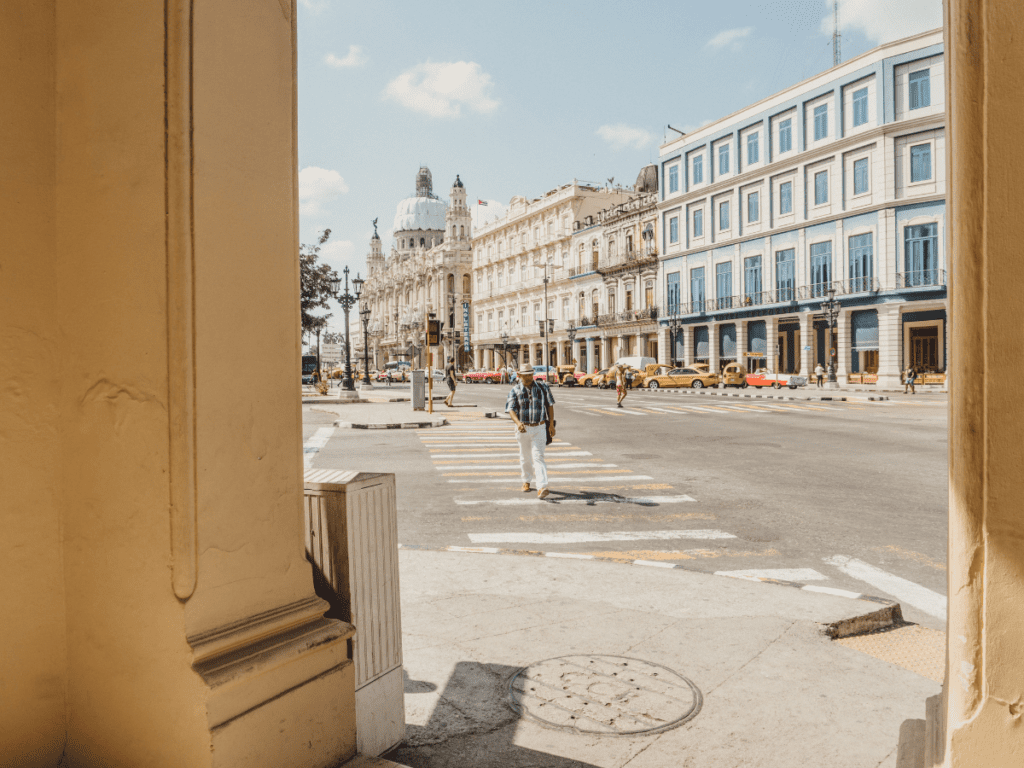
This post contains affiliate links that may reward me monetarily or otherwise when you use them to make qualifying purchases – at no cost to you. As an Amazon Associate, I earn from qualifying purchases. For more information, please read our disclosure policy .
Almost every traveler to Cuba will need to have a Cuban tourist visa when they arrive in the country. Also known as a Cuban tourist card or Cuba travel card , the Cuba tourist visa is something that every non-Cuban traveler will need to present this tourist visa at immigration when entering and exiting Cuba. This is one of the most crucial entry requirements for Cuba .
Only Cuban citizens and travelers with other types of Cuban visas (like student visas, business visas, or permanent residency) will not need to present a Cuban tourist visa upon arrival in Cuba.
Get Your Cuba Visa Online: EasyTouristVisa
Cuba Entry Requirements
A tourist visa to Cuba is one of the entry requirements for visiting the country, but only a very limited few will need to apply for a Cuban visa with their Cuban embassy in advance . Most travelers simply need to purchase their Cuban tourist visas before arriving in Cuba.
Those who must apply for a tourist visa in advance are from a select few Asian and African countries – that list can be found here . Check out this account from an Indian blogger about special requirements and procedures for the Cuba visa requirements for Indian citizens .
Most travelers to Cuba simply need to book their arline tickets to Cuba and purchase their Cuban tourist visa before arriving in Cuba, whether from an online visa service (we have used and recommend EasyTouristVisa !) or directly from their airline.
Guide to Entry Requirements to Cuba
- Entry Requirements to Cuba: The Ultimate Guide
- Cuba’s D’Viajeros Travel Form: A Guide for Travelers
- Travel Insurance to Cuba: Policy Requirements for Entry
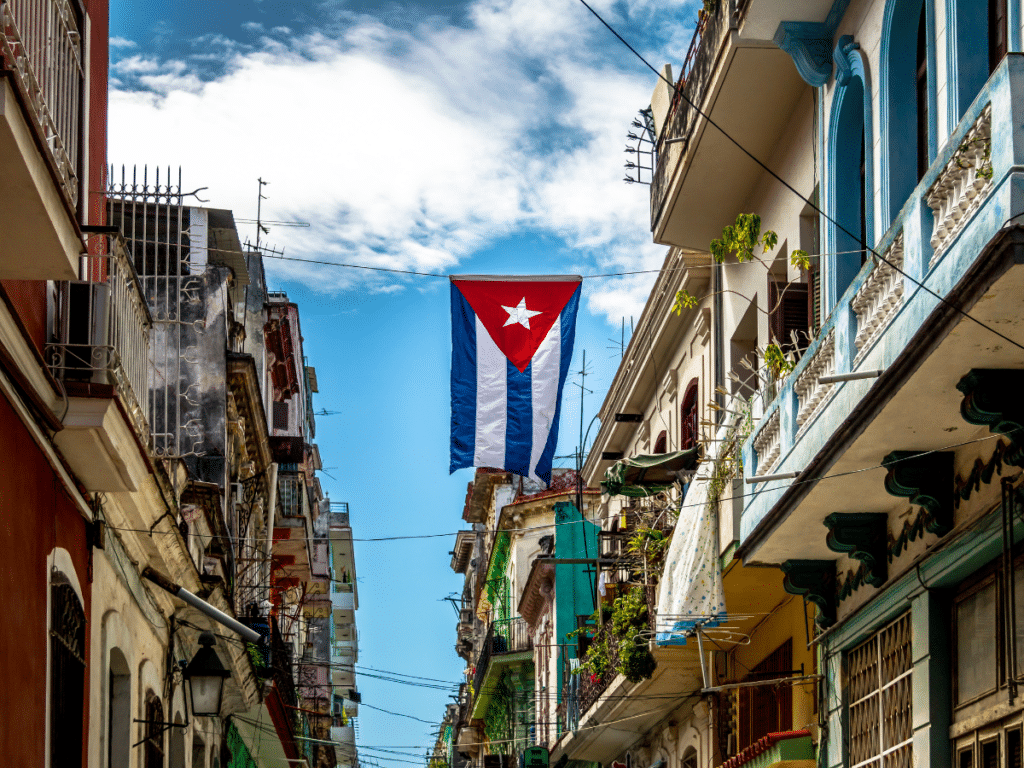
Cuban Tourist Visa
Cuban tourist visas are required for most travelers to Cuba who are not Cuban citizens or don’t have another visa status in Cuba (a student visa, permanent residency, etc). Thankfully, visas to travel to Cuba are very easy to get . Most travelers to Cuba get their Cuba visa before they travel, either online through the EasyTouristVisa website or from their airline, if possible.
Since there is no option for a Cuba visa on arrival, you’ll have to get your visa before you land in the country.
Types of Cuban Tourist Visas
Pink tourist visas.
Pink tourist visas are required for travelers arriving in Cuba on a flight from the United States (regardless of whether the traveler is a citizen of the United States or another country). Pink tourist visas generally cost between $50-110 .
Green Tourist Visas
Green tourist visas are for travelers arriving in Cuba from any country other than the United States. These green tourist visas generally cost between $20-50.
How Much Does a Cuba Tourist Visa Cost
The Cuban tourist visa does not have one fixed price – it varies depending on how and where you get it. The cost of a Cuban tourist visa also varies based on which type of tourist visa for Cuban you’ll need – either a pink tourist visa or a green tourist visa.
If ordering your visa online from EasyTouristVisa , make sure you select the correct visa type – either pink or green – depending on where you’ll be traveling from. Prompts on the website will guide you to make the right choice if you have any questions.
If you will be purchasing your tourist visa from your airline prior to departure, they’ll be prepared to offer you the visa color you’ll need.
Cuba Travel 101
- Currency in Cuba: A Local’s Guide for Travelers
- How to Get Wifi in Cuba [Updated!]
- Is Cuba Safe? Updated Cuba Safety Guide
- Ultimate Cuba Travel Guide – A Local’s Advice for Travelers
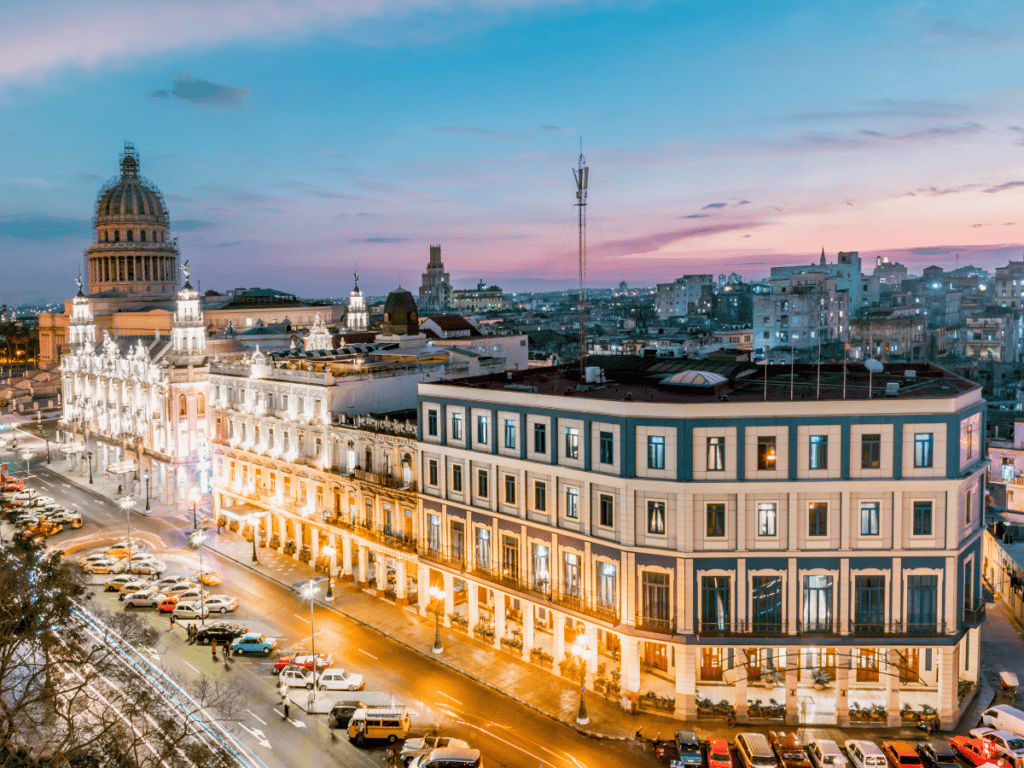
How To Get a Cuban Visa
There are several ways to get the Cuban tourist visa card required before you arrive in Cuba – some more challenging than others. You can get yours one of three ways:
- Get your Cuba visa online from the EasyTouristVisa website
- Get your Cuban visa from your airline
- Get a Cuban embassy visa
Cuba Visa Online
Cuba does not currently offer an online “e-visa” version of the tourist visa. You must have an official, physical tourist visa that you will present in immigration when arriving in the country.
However, you can obtain the Cuban visa online before your trip and have it sent to your home before you travel. I recommend looking into EasyTouristVisa as the most convenient way to get your tourist visa!
Cuba Visa from Airlines
Another way to get a Cuban tourist visa card is directly from the airline that will take you to Cuba. Each airline is responsible for making sure its travelers have a tourist visa before boarding a flight to Cuba, so they’ll generally offer the Cuban tourist visa for sale.
Most airlines offer these tourist visas for sale through their website after booking, and others may offer them prior to boarding the plane.
- American Airlines: The Cuban tourist visa from American Airlines costs $85 if purchased online through the airline prior to your flight or $125 if purchased at the airport during check-in or at your departure gate.
- Delta : The Cuban tourist visa from Delta costs $85 and can be purchased during check-in or at your departure gate.
- Copa Airlines: The Cuban tourist visa from Copa Airlines costs either $20 or $30, depending on your departure airport.
- Air Canada: Air Canada is an airline that includes the cost of the Cuba visa in the price of its ticket. Tourist cards are distributed to passengers in-flight, along with the customs and immigration forms you’ll need when you arrive in Cuba.
Cuba Visa From A Cuban Embassy
A final way to secure your Cuban tourist visa prior to traveling to Cuba is through your nearest Cuban embassy. Visit the website of the Cuban embassy in your country of origin to determine how to apply for a Cuban tourist visa from your embassy.
Generally, I don’t recommend this method of obtaining a Cuban tourist visa. This tends to be a more challenging and time-consuming way to go about what is a straightforward and simple process with EasyTouristVisa or through your airline.
Remember, it’s only required that you pre-apply for a Cuban tourist visa through an embassy if you’re from a small list of Asian and African countries . If you aren’t from one of these countries you’re free to purchase your tourist visa card online or through your airline.
What to Pack for Cuba
Check out our Ultimate Cuba Packing List to help you pack for your trip – we’re sharing exactly what to bring to Cuba and what we never travel without.
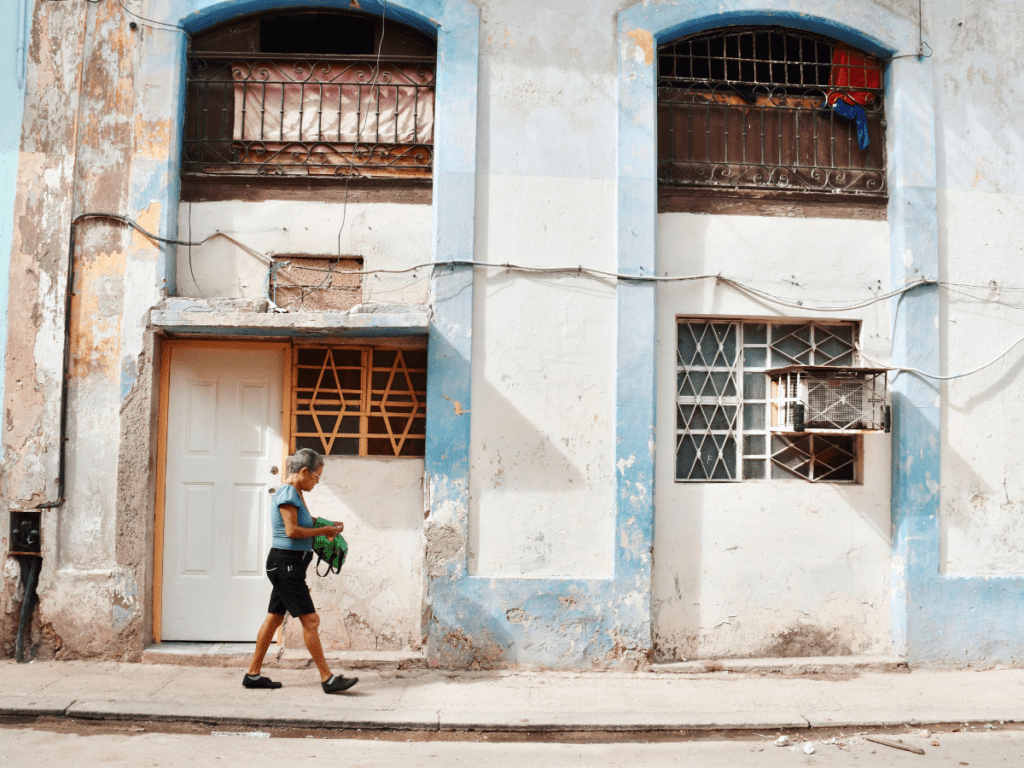
Cuba Visas – FAQ
Do americans need a visa for cuba.
Yes! Citizens of the United States need a tourist visa for Cuba. The government of Cuba requires that ALL non-Cuban visitors to the island have a tourist visa – also known as a tourist card – before arriving. There is no special Cuba visa for Americans; everyone needs the same tourist visa!
Special regulations restricting the travel of citizens of the United States to Cuba come from the government of the United States, not the government of Cuba. In the eyes of the government of Cuba, travelers from the United States are the same as travelers from any other country.
Guides for American Travelers to Cuba
- Can Americans Travel to Cuba?
- Support for the Cuban People Travel: Legal Cuba Travel for Americans
- Best Activ ities for Legal Travel to Cuba
What is the Difference Between a Tourist Visa and a Tourist Card?
What is the difference between the Cuban tourist visa and the Cuban tourist card? There is none – many people refer to the Cuban tourist visa as the Cuban tourist card , or even the Cuban travel card. Confusingly, these different phrases all refer to the same document.
The tourist visa to Cuba and the “Cuban tourist card” are the same thing – no need to worry about the use of multiple different names to describe the same document. One will suffice.
Read More: What is A Tourist Card for Cuba?

Carley Rojas Avila
Carley Rojas Avila is a bilingual travel writer, editor, content marketer, and the founder of the digital travel publications Home to Havana and Explorers Away. She is a serial expat and traveler, having visited 40+ countries and counting. Carley has written for publications like Travel + Leisure, MSN, Associated Press, Weather Channel, Wealth of Geeks, and more. Find her front row at a Bad Bunny concert, befriending street cats, and taste-testing every pizza in Havana.
Entry & Tourist Card
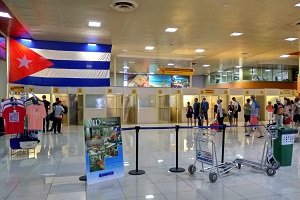
Updated: Dec 19, 2022
Entry Requirements (Tourist Card)
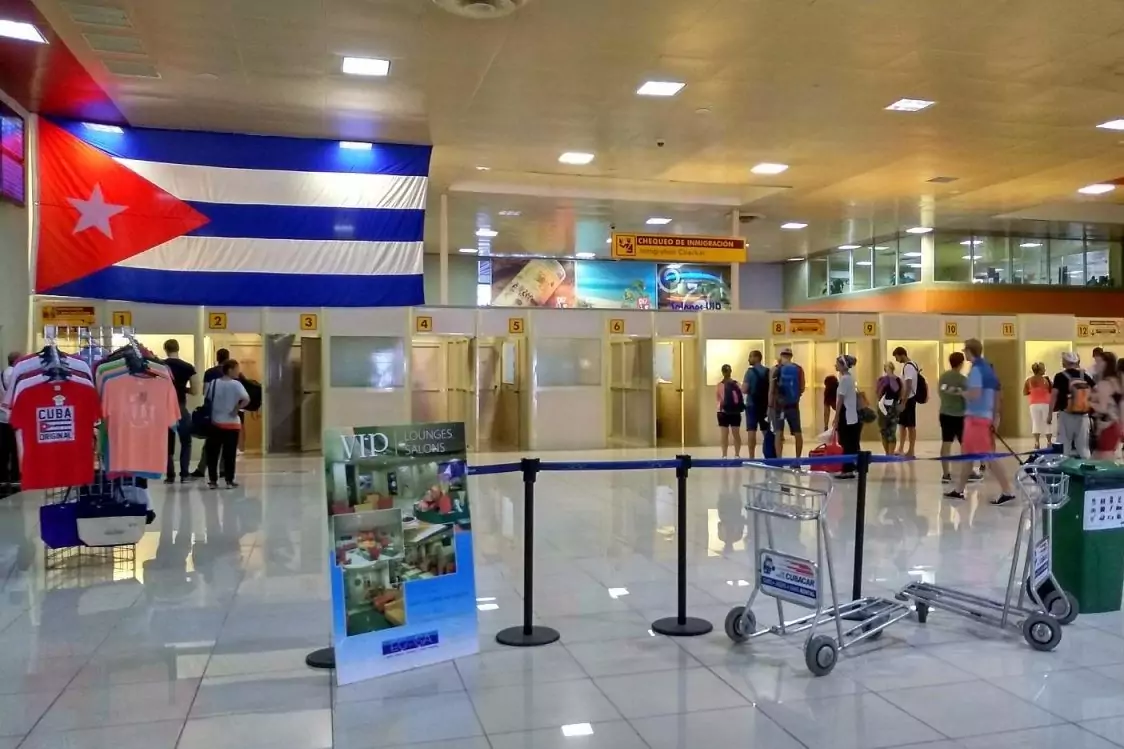
Which documents do you need to enter Cuba? For such a fundamental questiom here we give you all the information. You require: your passport, a tourist card and an appropriate travel health insurance. In addition, you will receive customs declaration forms in the plane, which must be filled and submitted when leaving the Cuban airport.
First, you need to know that anyone wish to come to Cuba as a tourist must have a valid ID number, health insurance and a visa, because the identity card is not enough for the entry. Your passport must be valid for at least six months at the time of entry.
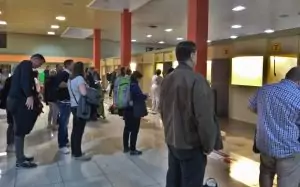
Passport control: Entering Cuba
If it’s not, you can just get a temporary one and enter Cuba with it. Children also need their own ID document (children’s passport).
Furthermore, you must show a proof of the health insurance at the passport control when requested. It must confirm, in Spanish, the insurance coverage for all the time you are staying in Cuba.
What is a tourist card?
The tourist card is officially a visa for tourist purposes. In fact, with this card you are allowed to stay in Cuba for 30 days. In case you decide to stay longer, you can extend it for another 30 days, twice!
You must show it at the passport control at the airport in Cuba. Nevertheless, keep in mind that the tourist card is also checked on the way out at the exit control, and therefore you must keep it in a safe place.
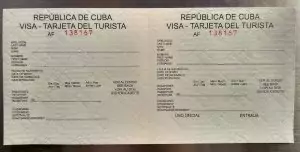
Tourist Card
With some tour operators or airlines, the tourist card is already included in the travel or flight price; this is more common with package tours. Some airlines also give their passengers the card for free, Air Canada for instance. In any case, if you are in doubt, you should ask the trip manager or the airline, so you won’t have to buy the card twice.
Surely if you do not show a tourist card at check-in in your home country, you run the risk that the airline will refuse to issue a boarding pass. Therefore, the card should be available, at the latest, when you check in.
Where to get the tourist card?
They are available at specialized travel agencies, Cuban consulates, online, or directly at major airports. Their cost is usually around 25 and 35 USD.
The easiest way to get it is at the airport, at the counter. Passengers can receive it at the transfer desk or directly at the gate. However, airports do not guarantee this sale. To be sure, you can always get in touch with the airline or the airport beforehand.
You can also get it from the internet in a quick and safe way. It will be sent to you as a letter, and you will receive it in a few working days.
On the other hand, buying it at the Cuban embassies or consulates is not recommended. Because, for instance: those who do not appear in person must pay an extra fee for being absent, and you will have to wait for it for a long time. But if you still want to try, you will need to take a proof of the health insurance coverage in Cuba and your passport. Fortunately, you will get the card filled out, but you can also do it by yourself without this service.
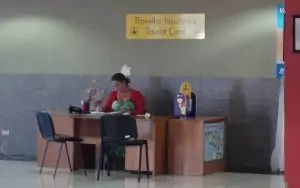
Tourist Card at Varadero Airport
In conclusion, travelers should find a way to have the card in advance. However, at the latest you can buy it at the airport, often directly at the gate. For instance, those arriving from Panama or Mexico can get it at the gate for around 20 USD. On the other hand, travelers coming from the US must have a special tourist card (pink) which are available at the airport or online.
If you can make it to Cuba without the card, you can acquire it on the arrival at the airport, but it is relatively expensive (75 USD).
How to fill the Cuba tourist card?
Once you have it, you should fill it at the latest in the plane. Make sure you do not make mistakes, because if you do, theoretically you will have to buy a new one. Fill it with your last name, first name, date of birth, passport number and citizenship ; same information on both sides .
What if you lose your tourist card?
You must show this card at control points during the stay and, when leaving the country the card is checked and retained, that is why you should always keep it in a safe place. In case you lose it during your stay in Cuba, go to an immigration office and have a new card issued, the cost should be around 25 USD. If you cannot get a replacement card soon enough, or find out that it is missing at the airport, then you will have to pay extra when leaving the country.
How to extend your stay
In this case, you will have to buy stamps worth 25 USD at a Cuban bank. Then go to an immigration office, and take with you the stamps, the tourist card, your passport, a receipt from the accommodation and a proof of a health insurance covering the period of your stay; then you will get your extension. Also, you should know that you can do this twice, the widespread information that you can only do it once, is wrong.
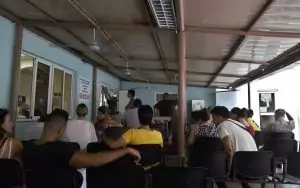
Waiting at the Immigration (Vedado 2018)
There is an immigration office in Havana, not far from Habana Libre Hotel, on the 17th street (calle 17 y K); you should expect a long wait in line there. There is also an immigration office at each provincial capital and in Varadero.
If you want to stay longer than 90 days, you can either re-enter or enroll in a language course and apply for a temporary residence permit.
What about your health insurance?
Travel or International health insurance must be available upon entry. You should also take a look at the information on medical care and health risks on it. If your health insurance covers the stay, you will need a confirmation written in Spanish. It must be specified on the document the protection for Cuba and the covered period of the trip.
In case you do not have it, you can easily get one online for a reasonable price, and it should include several important benefits. However, if you cannot get it online, buy it at the airport, but it will not include some essential services and the price is higher, so we do not recommend it.
Customs declarations:
You will get one on the flight, and you must fill it and give it to customs when you leave the airport. There you must state your name, flight number, airline, cash holdings (up to 5000 USD), medication and any possession of forbidden items such as drugs and pornography. If you make a mistake filling it you can get a new one at the airport. If you need, you can get advice from the customs staff in case you are carrying special items, which you can import in reasonable quantities taking into account the length of the stay and the purpose of the trip. These items are, for example, cell phones, laptops, cameras, binoculars, music instruments or bikes. Obviously, these forms have no significance for normal trips.
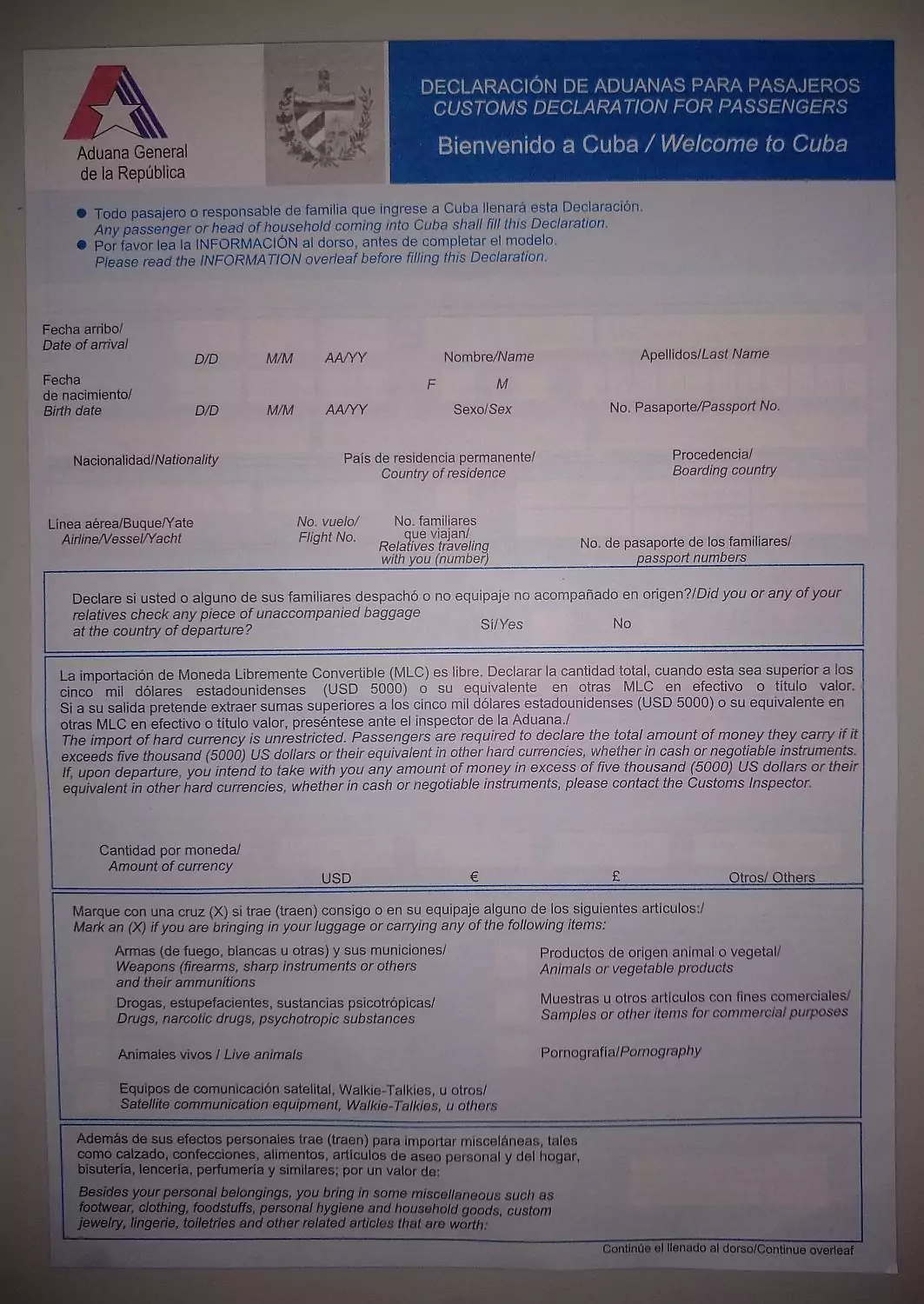
Customs declaration Cuba
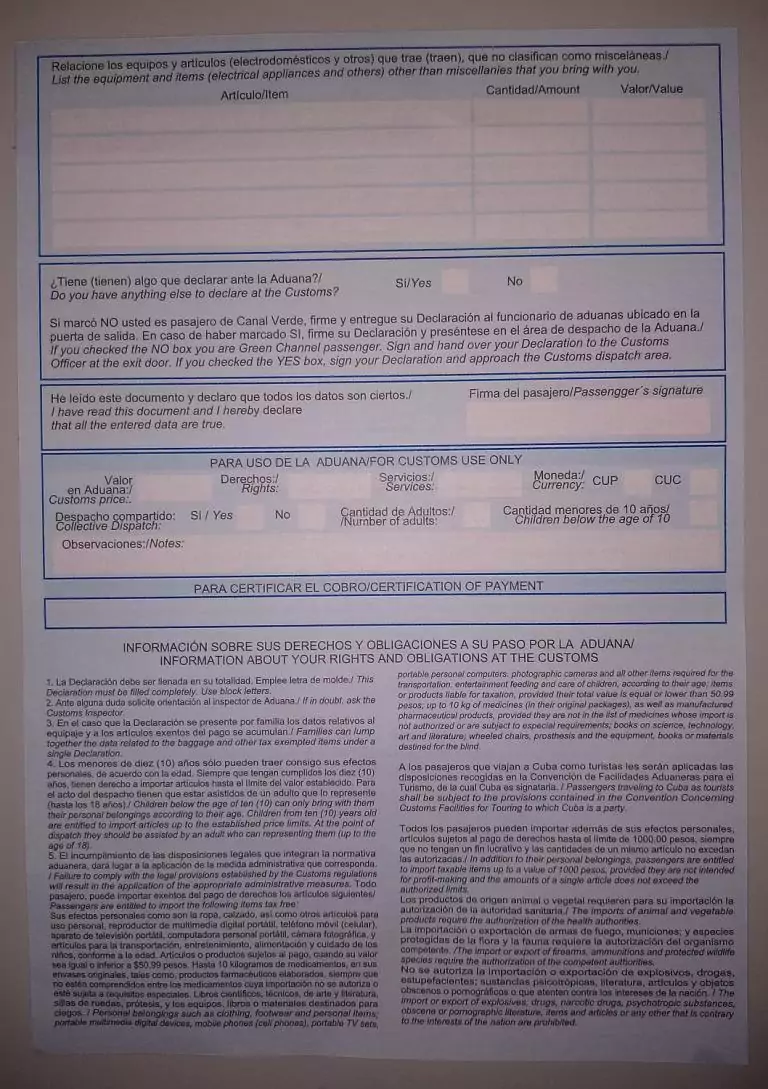
Custom declaration II
What is not allowed to bring to Cuba? (Customs regulations)
Big quantities that exceed personal needs must be declared and cleared out through customs. In extreme cases, some of your goods can be taken away; this is of course, in case you are trying to import a non-personal amount of things and/or forbidden ones.
If you are trying to take gifts, up to the cost of 50 USD, they can be imported without any tax, what is not the case of gifts from 50 to 250 USD, where you will have to pay a tax worth the gift value (100%).
With electronic devices, you should expect that customs would detect them during an X-Ray check of your luggage and charge you an import tax as well.
On the other hand, the import of two way radios and satellite cell phones is forbidden without permission. In general, it is better to be careful with electronic devices and only carry one of a type. If you are traveling with two laptops for professional reasons, you should not have any problem, that is also the case of photographers who are traveling with two cameras. The customs control help prevent black market and levy import duties. The important decision lies in whether the goods should remain in Cuba or not.
The same happens with bikes and any other sport equipment, if you want to import them for personal use, there should not be any problem or any tax applied. This is also the case if you want to import up to 10 kg of medication.
On the other hand, the import of any kind of fresh food (fruit, vegetables, meat, dairy products) is forbidden in Cuba for health reasons, it must be thrown away upon entry. In absolutely no case, you should bring drugs to Cuba, customs make regular checks with drug dogs, and even the possession of light drugs such as marijuana is punishable by serious penalties.
Short-term adjustments can be expected. Therefore, we recommend you to check the detailed information on the Cuban import and export regulations on the website of Cuban Customs.
Good to know
Upon entry, a picture of every passenger will be taken at passport control. Formally, you should show a proof of a return ticket when entering Cuba. But they actually don’t check if you have it or not.
If you own a Cuban citizenship and any other country citizenship, you will be treated exclusively as a Cuban citizen by the authorities, this means the mandatory use of your Cuban.
Departure time!
Some years ago, you would have been forced to pay and exit tax, but you don’t have to anymore. What you will have to do, is presenting your passport and tourist card (this one will be withdrawn). Anyone who stayed longer than the established 30 days will have to pay extra.
The good part is that the security check is usually quite quick. You will have to take off your shoes and you will not be able to take lighters into the plane with you, so better leave it in the check-in luggage.
Take into account that the suitcases spend some time at the airport before being loaded into the plane. Therefore, sometimes, items get stolen from the suitcases. Our recommendation is to put your valuables in your hand luggage.
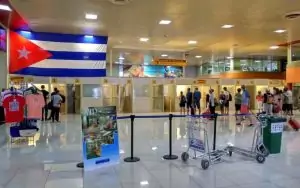
Leaving Cuba
In case you want to take cigars with you, first check the export regulation for tobacco products. Without a proof of your purchase, you can take with you up to 20 cigars; you should have an official receipt to take more. In addition, they should remain in their original sealed package.
You are not allowed to export Cuban money, but if you want to take a few pesos with you as a souvenir, it’s OK.
Some souvenirs, like photos and art paintings are subject to a tax that is usually below 10 USD. Be careful with trying to take some souvenirs that violates species protection and also, antiques; their exportation is generally forbidden.
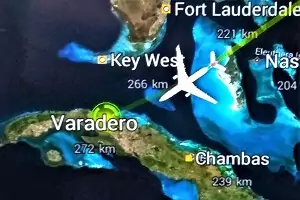
Stay Healthy
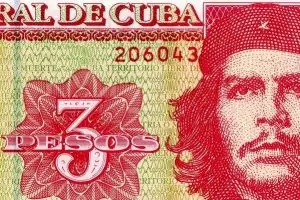
Money & Currency in Cuba
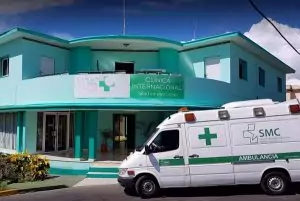
Health Insurance
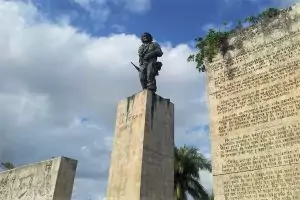
Gifts & Donations

Packing list

Electricity (Plug Adapter)
you're currently offline
Getting a visa to visit Cuba can be tricky, but it's worth it

Jan 18, 2024 • 4 min read

Apply early for a visa to Cuba unless you're one of the few nationalities that don't need one © Matt Porteous / Getty Images
Cuba is a Caribbean paradise, but because of the island’s tumultuous history and international relations, its visa rules can be complicated – especially for visitors from the US.
We've rounded up all the key information you need to know about Cuba ’s entry requirements, including details on the various types of visas, how to secure them and what they'll cost you.
Do I need a visa to visit Cuba?
Citizens of some Caribbean, Asian and European countries, including Russia, Montenegro, Serbia and Singapore, can travel visa-free to Cuba for up to 90 days with a passport that doesn’t expire for at least six months.
Passport holders from all other countries must purchase what is known officially as a Cuba Tourist Card, although it's often referred to as a Cuban visa.
You can get a Cuba Tourist Card one of three ways – pick it up yourself from the Cuban consulate in your home country, apply through the officially licensed third-party Visa Cuba , or have one included as part of a travel package purchased through a travel agency or airline.
You’ll need to provide your passport number, home address, the address of your booked accommodations in Cuba and information on your confirmed flights.
Depending on your country of origin, visa fees range from US$25 to US$85 – additional costs apply depending on who you purchase it from (in person at the consulate is the best way to avoid add-on handling fees).
If you apply by mail, you must send all needed documentation plus a self-addressed return envelope, so that the consulate can mail your visa card back to you.

How do I use my tourist card in Cuba?
As you depart Cuba at the end of your trip, you must present your Cuba Tourist Card to immigration authorities – make sure to store it in a safe place for the duration of your vacation. If you lose it during your stay on the island, you’ll have to wait a few hours for the authorities to clear you and issue a new document before you head back home.
The Cuba Tourist Card allows for a single-entry, 30-day stay in Cuba (90 days for Canadian citizens), but if you decide to stay longer, you can renew your visa for another 30 days at your hotel desk or at the nearest local immigration office.
Is it possible to re-enter the USA after I have been to Cuba?
Unfortunately, many non-US citizens have been caught out by the January 2021 change to the US ESTA (Electronic System for Travel Authorization) rules which now state that your ESTA is invalid if you have traveled to Cuba.
This doesn't mean you cannot go to Cuba via the USA and back, it just means you need to apply for a US visa from a US embassy or consulate.
For additional information about travel eligibility under the Visa Waiver Program, ie the ESTA, go to the US Customs and Border website .

Can Americans visit Cuba?
The rules on Americans visiting seem to change with each new presidential administration. Yet the bottom line remains the same: Americans are allowed to visit Cuba, but traveling for tourism is not officially allowed.
The US Department of State issues licenses for 12 categories of travel , which include family visits, educational exchanges and humanitarian projects.
Independent American travelers might qualify to use the “support for the Cuban people” category; anyone who does this, however, must provide a detailed itinerary of the planned visit.
Additionally, US travelers are required to keep all travel receipts from Cuba for five years. While American citizens are forbidden from staying in Cuba’s government-run hotels , they can stay in casas particulares (private homestays).
If you’re a US citizen, you still need to purchase a Cuban Tourist Card – it's just a little different from the regular one (it’s pink in contrast to the green cards for other nationalities), as well as more expensive. Costs average around US$85 but we've seen up to US$110.
The final amount depends on the travel agency and its handling fees. Fees also apply depending on how you get the tourist card – in person at the Cuban consulate in Washington, DC, or by post.
You may be able to buy your tourist card directly from the airline you’re traveling to Cuba with. Contact them for the latest information.
It’s worth using an experienced US–Cuba travel organizer like Insight Cuba or Cuba Educational Travel – they'll be able to answer all your questions and help you navigate the bureaucracy.
This article was first published Mar 5, 2022 and updated Jan 18, 2024.
Explore related stories

Tips & Advice
May 28, 2024 • 9 min read
From Aarhus to Zanzibar, plan your travels for July 2024 with these top places to visit.

Jan 9, 2024 • 4 min read

Jan 9, 2024 • 6 min read
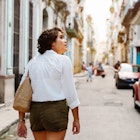
Jan 6, 2024 • 7 min read

Jan 5, 2024 • 8 min read

Jan 5, 2024 • 4 min read

Jan 6, 2023 • 7 min read

Jan 5, 2023 • 8 min read

Nov 11, 2022 • 3 min read

Apr 28, 2022 • 6 min read
- Table of contents
Traveling to Cuba
Cuba visa types, a valid passport, personal photo, a complete application form, payment of visa fees, cuba visa application steps, where to apply for cuba visa, cuba visa processing time, cuba visa faq.
With a friendly population and stunning beaches, Cuba has long been a popular tourist destination. In recent years, it has also been growing as an investment hub and an attractive place for businesspersons, students, researchers, and more.
Most foreign nationals are required to obtain a visa before entering Cuba. Visas are available for a variety of purposes and durations of stay. Most visa types can be obtained by applying in person or by post at the nearest Consulate of Cuba.
The validity of a Cuban visa will vary depending on the applicant’s intended purpose of stay and the visa type they apply for.
There are several types of Cuba visas available to foreign nationals. Applicants can select from the following visa types depending on their purpose of travel to Cuba:
- This visa is only issued to eligible nationalities as a faster means of securing tourist permission to enter Cuba. It is granted as a separate card and is not stuck inside the applicant’s passport.
- This visa type grants the same permissions as the Tourist Card, but it is stuck inside the applicant’s passport. Applications can be submitted in person or by post.
- This visa is intended for the foreign national dependents (spouses and children) of Cuban citizens who want to travel to Cuba to visit family members.
- This visa is issued to journalists, media professionals, and other members of the press traveling to Cuba for official purposes.
- Applicants must request this visa at the press office of the Cuban Embassy. If approved, the relevant Consulate will then be notified and the applicant can submit their application.
- This is a visa for any individual traveling to Cuba to engage in business-related activities.
- Applicants must request this visa at the commercial office of the Cuban Embassy. If approved, the relevant Consulate will then be notified and the applicant can submit their application.
There are other visa types available for studying, attending events, and more. In order to apply for one of these, the applicant must inquire at the nearest Consulate of Cuba in their home country and request more information.
Cuba Visa Requirements
To apply for a Cuba visa, applicants must submit several documents depending on the purpose of the trip. The following documents are the basic requirements for all visa types:
The passport must be valid for at least six (6) months and contain at least one blank page for the sticker visa to be placed inside.
The applicant is required to submit one recent passport-sized personal photograph.
Application forms can be found on the relevant embassy website. All forms must be completed accurately with all personal and travel details.
The payment will vary depending on the visa type, the method of submission the applicant uses, and the foreign mission where they submit the application.
Depending on the applicant’s nationality and visa type, some additional requirements may apply. These requirements may include a birth certificate, a travel itinerary, or bank statements.
As per the Cuban authorities, all travelers must obtain a travel insurance policy to cover their medical expenses. The appropriate travel insurance can be purchased in the applicant’s country of residence prior to their trip or upon arrival in Cuba at the point of entry.
The application process for any Cuban visa type is fairly straightforward.
Applicants can take the following basic steps to submit their Cuba visa application:
Application forms can be found on the relevant embassy website and must be completed with accurate and up-to-date personal and travel information.
Applicants must have all the required documents prepared to send by post or submit in person with their visa application.
Some visa types require the applicant to request the visa at the relevant office of the Cuban Embassy.
The payment method for the visa fee will vary depending on the method and location of submission.
Once the payment is received, applicants can submit their visa application by post or in person at the relevant consulate.
Cuban visas can be obtained by submitting the application form and required documents to the relevant Cuban foreign mission (embassy/consulate) in person or by post.
The processing times for Cuban visas are subject to vary depending on the visa type and the location where the applicant submitted their application.
A Cuba visa is a travel document that allows a foreign national to enter the country lawfully for a specified duration of time and purpose of travel.
The cost of a Cuba visa will vary depending on the visa type and the location where the applicant submits their visa application.
Nearly all Cuban visa applications can be submitted at the nearest Consulate of Cuba by post or in person.
Nearly all foreign nationals require a visa to enter Cuba. The visa type will depend on the applicant’s nationality and their intended purpose of stay.
Check if you need a visa for your next destination
Latest news and articles.

Do you need a passport to book an international flight?

Best Summer Destinations 2024

Greece unveils visa-on-arrival program for Turkish tourists to 10 islands
Your client portal login provides access to your organization’s preferred pricing and customized features

- About Us CIBTvisas Global Offices Immigration Services CIBTvisas Global Leadership CIBTvisas Careers Contact CIBTvisas In The News
- Travel Visas Do I Need a Visa? Expedited Visa Solutions ETA Travel Visa FAQs Corporate Travel Solutions
- Passports Same Day Passport Passport Renewal First-Time Passport Lost or Stolen Passport Child Passport Name Change Second Passport Passport FAQs
- Document Services
- Resources CIBTvisas Travel Blog Destination Entry Requirements Podcast ETIAS White Papers Research Webinars
- Services A1 Compliance Global Immigration Services US Immigration CIBTvisas Service Directory Learn More About Our Services Corporations Cruise Lines Tour Operators Onsite Services All Partner Solutions Learn More About Our Client Solutions
- Your Order Check Order Status View Invoice Upload Documents
Get a Cuba Visa
- When is the best time to apply for my Cuba visa? The best time to apply for your Cuba visa is 1-2 months before your travel date.
- Do I have to send you my passport to get a Cuba visa? Is it safe to send a passport? You will need to send your actual passport, not a copy of it. The Cuba visa is stamped on your passport and will become one of your passport pages. Visa requests cannot be processed without your original passport. Because of the importance of your passport, we strongly suggest that you send your application and passport to CIBTvisas in a secure way, using a traceable courier such as FedEx, UPS, Express Mail or Certified Mail.
Business Visa Application Requirements for a Cuba Visa
Personal Appearance
The consulate requires travelers to apply directly and a personal appearance may be necessary to obtain your visa. We recommend that you contact the consulate to obtain the most current forms and requirements before making a personal appearance at the consulate. Many consulates require an application appointment. Please contact:
Tourist Application Requirements for a Cuba Visa
Special Instructions
You must obtain a tourist card in order to travel to Cuba. The travel document must be obtained through your airline or tour company. Please contact them in order to obtain the necessary documents for your tourist card.
Visa Pre-Check
Have an urgent visa application that carries a tight deadline? CIBTvisas can help you to save valuable time and avoid expensive delays. A CIBTvisas expert will review all of your documents to confirm your application is accurate, complete and ready for submission. We will contact you personally to quickly handle any mistakes ensuring your application is submitted correctly.
Fast Track Your Visa
Need your visa processed quickly? CIBTvisas can fast track your order and process it in the fewest days possible.
View A Sample Visa
Don't know what a visa for your destination looks like?
You can view a sample visa for your country of destination and see the information it contains.
About CIBTvisas
- Travel Visas
CIBT Around the World
- netherlands
- switzerland
- United Kingdom
- United States
Top Destinations
- Vietnam Visa
- Brazil Visa
- Australia Visa
- Indonesia Visa
- Saudi Arabia Visa
- 800-929-2428
- Learn More About Our Client Solutions
- Privacy Policy
- Terms & Conditions
- Copyright 2024
- Privacy Shield Compliant
- TRAC Certified
- As Seen in The New York Times
How to fill out the Cuba D’Viajeros Travel Form
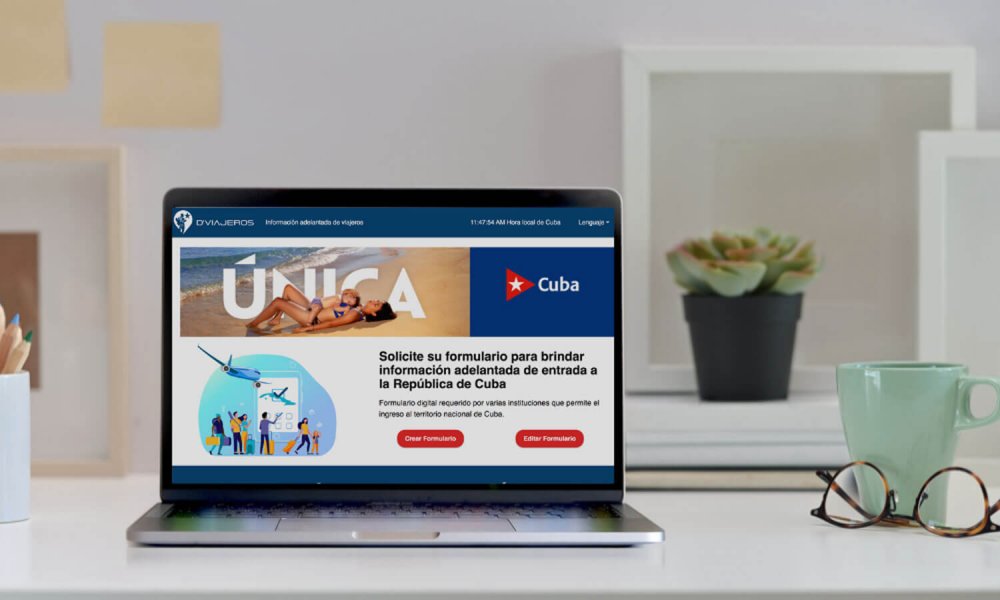
Getting ready to travel to Cuba? Make sure you follow our steps to complete the D’Viajeros travel form before you travel. The form must be completed and shown at the airport before and after travelling to the island and requires passengers to input data such as their passport information, travel plans, and customs declarations.
Filling D’Viajeros form is mandatory for each passenger, and although it can be a bit confusing, we’re hoping our easy guide will help you fill it in without issues!

Step 1: Go to this site https://dviajeros.mitrans.gob.cu/inicio
You can only fill in this form 48hrs prior to departure so don’t even try beforehand!
The first screen you’ll see looks like this:

Step 2: Select your language
If you don’t speak Spanish then click Top Right Hand ‘Lenguaje’ tab for the dropdown language menu and choose Ingles/ English which will instantly translate the page for you!
Step 3: Click on ‘Form Request’ to start the process
A form will appear on the page.
Step 4: Fill in your personal data
Please note mandatory fields in RED. When you’ve done this, click the button that says ‘NEXT’.

Step 5: Migratory information
Fill in ‘Flight information’ and ‘Arrival Airport’. If you’re arriving in Havana, it’s Aeropuerto Internacional Jose Marti (HAV)
Step 6: Sanitary Information
Fill in information ‘Sanitary Information’ including ‘Vaccination information’. If you haven’t been vaccinated you should have a negative PCR test (although currently not mandatory for entry to Cuba. Please refer to UK GOV’s Cuba entry requirements here )
Step 7: Select your vaccination type from the drop-down menu

Step 8: Choose where you’re going
Make it easy for yourself and just select La Habana 🙂 When it comes to Municipalities , choose Habana Vieja or Plaza de la Revolucion for accommodation in the Vedado area.

Step 9: Choose where you’re staying
- If you’re staying in a Casa Particular choose House or room for rent and add the name and address we have given you for your first night’s stay.
- If you’re staying in a Hotel choose Hotel , then select a hotel from the drop-down menu
Step 10: Customs Information
There is no requirement to declare what you are bringing unless you are bringing more than $5,000 in cash or miscellaneous non-personal items worth more than $1,000.
Please make sure you tick the boxes asking whether you have any unaccompanied baggage AND if you have anything to declare to Customs.
Step 11: Sworn declaration
Nothing confusing here….
Step 12: The PDF
Make sure you view PDF and print it or save it.
With other QR codes, you get sent a copy via email, but NOT so with Cuba! This is why it’s critical that you’ve saved a copy. I print a version AND put a copy in my phone wallet just in case….
…and that’s it! You’re one step closer to your dream Cuban adventure!

Need help planning your Cuba holiday?
With over 20 years of experience organising sustainable tours in Cuba, at Cubania we have your back. From Cuba cycling tours to family or LGBTQI-friendly Cuba tours, we’ve got something for everyone!
Related stories From Cuba

These are the BEST Cuban Beaches
June 28, 2024, written by Leandra Freitas
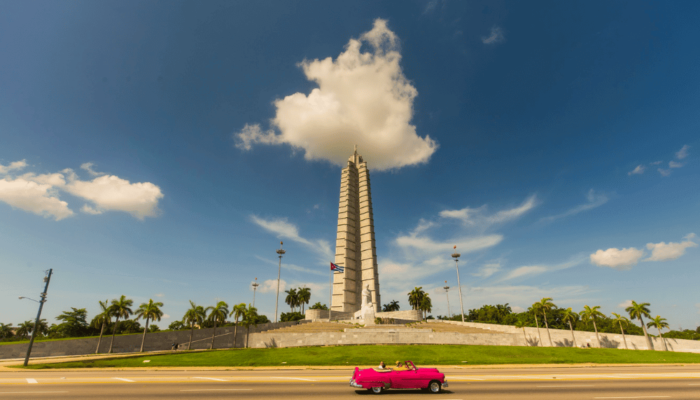
The Best Museums to visit in Havana
April 23, 2024, written by Cubania Team

Can I fly to Cuba from the USA?
May 23, 2024, written by Cubania Team
Free Destination guide

Cuba is open! Book your trip now!
Free cuba travel guide.
Subscribe to our newsletter to get useful information and up-to-date insights on the island. Get tips on:
✔ Local language ✔ Cycling & Trekking ✔ Money & Costs ✔ Transport ✔ Hotel & Facilities
Business Channel B2C B2B Guides Journalists
Downloaded Destination Guide Bike Cuba Cubania Classic Cycle Cuba Insight Experience Havana Cuban Active Adventure Western Skyline Ride Cuba Completa Hip Havana Salsa Cubana Road Cycling Western & Central Cuba Bikepacking Cuba Kayaking in Cuba Run And Cycle In Cuba Havana Marathon Queer Cuba Havana Cycling Tour Western Cuba Trek Family Active Adventure Central Cuba Bike Ride Cuban Discovery Family Beach and Culture Central Cuba Trek Western And Central Cuba Trek Road Cycling Cuba Vuelta de Cuba
Consent I am happy for Cubania Travel to contact me occasionally via email
Click here to download Haga clic aquí para descargar
View Privacy Policy
We’re sorry, this site is currently experiencing technical difficulties. Please try again in a few moments. Exception: request blocked

- What is a visa?
- Electronic Visa (eVisa)
- Visa on Arrival
- Appointment Required Visa
- Invitation Letter
- Arrival Card
- Passport Renewal
- Project Kosmos: Meet the man with the world's most challenging travel schedule
- Australia Visa and ETA requirements for US citizens explained
- Brazil eVisa for US citizens
- India Tourist Visa for UK citizens
- Possible B1/B2 Visa questions during the interview
Select Your Language
- Nederlandse
- 中文 (Zhōngwén), 汉语, 漢語
Select Your Currency
- AED United Arab Emirates Dirham
- AFN Afghan Afghani
- ALL Albanian Lek
- AMD Armenian Dram
- ANG Netherlands Antillean Guilder
- AOA Angolan Kwanza
- ARS Argentine Peso
- AUD Australian Dollar
- AWG Aruban Florin
- AZN Azerbaijani Manat
- BAM Bosnia-Herzegovina Convertible Mark
- BBD Barbadian Dollar
- BDT Bangladeshi Taka
- BGN Bulgarian Lev
- BIF Burundian Franc
- BMD Bermudan Dollar
- BND Brunei Dollar
- BOB Bolivian Boliviano
- BRL Brazilian Real
- BSD Bahamian Dollar
- BWP Botswanan Pula
- BZD Belize Dollar
- CAD Canadian Dollar
- CDF Congolese Franc
- CHF Swiss Franc
- CLP Chilean Peso
- CNY Chinese Yuan
- COP Colombian Peso
- CRC Costa Rican Colón
- CVE Cape Verdean Escudo
- CZK Czech Republic Koruna
- DJF Djiboutian Franc
- DKK Danish Krone
- DOP Dominican Peso
- DZD Algerian Dinar
- EGP Egyptian Pound
- ETB Ethiopian Birr
- FJD Fijian Dollar
- FKP Falkland Islands Pound
- GBP British Pound Sterling
- GEL Georgian Lari
- GIP Gibraltar Pound
- GMD Gambian Dalasi
- GNF Guinean Franc
- GTQ Guatemalan Quetzal
- GYD Guyanaese Dollar
- HKD Hong Kong Dollar
- HNL Honduran Lempira
- HTG Haitian Gourde
- HUF Hungarian Forint
- IDR Indonesian Rupiah
- ILS Israeli New Sheqel
- INR Indian Rupee
- ISK Icelandic Króna
- JMD Jamaican Dollar
- JPY Japanese Yen
- KES Kenyan Shilling
- KGS Kyrgystani Som
- KHR Cambodian Riel
- KMF Comorian Franc
- KRW South Korean Won
- KYD Cayman Islands Dollar
- KZT Kazakhstani Tenge
- LAK Laotian Kip
- LBP Lebanese Pound
- LKR Sri Lankan Rupee
- LRD Liberian Dollar
- LSL Lesotho Loti
- MAD Moroccan Dirham
- MDL Moldovan Leu
- MGA Malagasy Ariary
- MKD Macedonian Denar
- MNT Mongolian Tugrik
- MOP Macanese Pataca
- MUR Mauritian Rupee
- MVR Maldivian Rufiyaa
- MWK Malawian Kwacha
- MXN Mexican Peso
- MYR Malaysian Ringgit
- MZN Mozambican Metical
- NAD Namibian Dollar
- NGN Nigerian Naira
- NIO Nicaraguan Córdoba
- NOK Norwegian Krone
- NPR Nepalese Rupee
- NZD New Zealand Dollar
- OMR Omani Rial
- PAB Panamanian Balboa
- PEN Peruvian Nuevo Sol
- PGK Papua New Guinean Kina
- PHP Philippine Peso
- PKR Pakistani Rupee
- PLN Polish Zloty
- PYG Paraguayan Guarani
- QAR Qatari Rial
- RON Romanian Leu
- RSD Serbian Dinar
- RUB Russian Ruble
- RWF Rwandan Franc
- SAR Saudi Riyal
- SBD Solomon Islands Dollar
- SCR Seychellois Rupee
- SEK Swedish Krona
- SGD Singapore Dollar
- SHP Saint Helena Pound
- SLL Sierra Leonean Leone
- SOS Somali Shilling
- SRD Surinamese Dollar
- SVC Salvadoran Colón
- SZL Swazi Lilangeni
- THB Thai Baht
- TJS Tajikistani Somoni
- TOP Tongan Pa anga
- TRY Turkish Lira
- TTD Trinidad and Tobago Dollar
- TWD New Taiwan Dollar
- TZS Tanzanian Shilling
- UAH Ukrainian Hryvnia
- UGX Ugandan Shilling
- USD United States Dollar
- UYU Uruguayan Peso
- UZS Uzbekistan Som
- VND Vietnamese Dong
- VUV Vanuatu Vatu
- WST Samoan Tala
- XAF CFA Franc BEAC
- XCD East Caribbean Dollar
- XOF CFA Franc BCEAO
- XPF CFP Franc
- YER Yemeni Rial
- ZAR South African Rand
- ZMW Zambian Kwacha
Apply for and track your visa with our new app!
Download Now
How to get a Cuba visa online? - requirements for application
Important update: Because we're an American company, we at iVisa, are no longer allowed to offer the Cuban Visa. That being said, we can still help you with all the information you need to apply for your visa online correctly.
Cuba is a pearl in the Caribbean. Tourists visit this island repeatedly because of its sparkling waves, charming towns, and friendly people, among other reasons.
To enter Cuba, international travelers will need to obtain a Cuba Visa or a Tourist Card, depending on their nationality. You can use our Visa Checker Tool to find out which travel document you need to visit Cuba.
Below we'll tell you everything you need to know about these documents, the requirements, and how to get them.
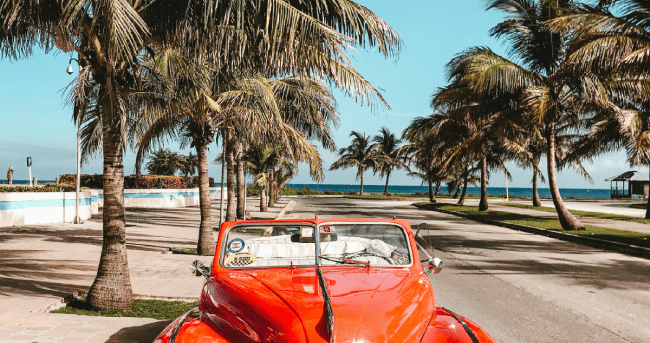
What's the difference between a Cuba Visa and a Tourist Card?
A Cuban Tourist Visa and a Cuban Tourist Card are very similar documents. They both allow you a single entry lasting up to 30 days .
However, obtaining a Cuba Tourist Card is far easier than getting a visa. You can apply for a Tourist Card online, or get one at a travel agency or at the many airlines that fly to Cuba.
Then, why would anyone apply for a Cuba Tourist Visa ? Because the tourist card is not available for all passport holders. There are around 20 nationalities that can only apply for a Cuba Tourist Visa. Check if yours is one of them by using our visa checker tool.
What are the Cuba Visa Requirements?
To apply for either document, all you'll need is the following:
A valid passport - It must be valid for at least 6 months after you arrive in Cuba.
Your flight itinerary - For both to and from Cuba.
Travel Insurance - All travelers must carry their own insurance.
With these documents, you'll be able to enter Cuba once and stay there for a maximum stay of 30 days . You can extend your stay for another 30 days at an immigration office in Cuba. You may be required to present additional documentation and provide reasons for an extended stay.
If you're a Canadian citizen , you can stay in Cuba for 90 days .
Remember that neither the Cuban Tourist Visa nor the Cuban Tourist Card allows you to work in Cuba.
If you're a citizen of the US or traveling from the US , you will need to apply for a special pink visa . The requirements and duration of the visa are the same. The only thing that changes is the price. US citizens and travelers coming from the US have to pay a surcharge for their Cuban Visa or Tourist Card.
All travelers need to carry their Cuban Visa or Tourist Card, including minors .
How to apply for a Cuban Visa
As said before, you can apply through many travel agencies and airlines. But we strongly recommend that you apply online for your visa to Cuba.
The application process is straightforward. All you need to do is fill out an online form, upload your supporting documents and pay for your visa. In the online application form, you will be required to provide personal information, details of your trip, and contact information like an email address and phone number.
Once your visa is ready, you will receive it via email. Most visas are processed at the standard speed , which takes 1 week . However, you can also pay an express fee and obtain your visa in 1 business day.
Although we cannot recommend a specific visa service provider, we can tell you about many Cuba visa services online. We recommend you research them all and find the right one for you.
Pro-tip: Ensure that the government fee is already included in the service fee of your visa application.
Do I need to visit a Cuban Embassy to get a Tourist Visa or Card?
The process to obtain a Tourist Card can be completed online. However, to get a Cuban Tourist Visa, some travelers might be required to visit the embassy or consulate. If so, you will be notified via email or at the time of application.
Suppose you're looking to obtain a different visa, like a business visa or a long-term visa to work or study in Cuba. In that case, you'll need to contact the embassy to obtain more information and complete the application process.
Where can I get more information?
Reach out to our excellent customer support team via chat or email at [email protected] to get an answer to all your questions about this or any other travel document. They are available 24/7 to help you.
Related Articles
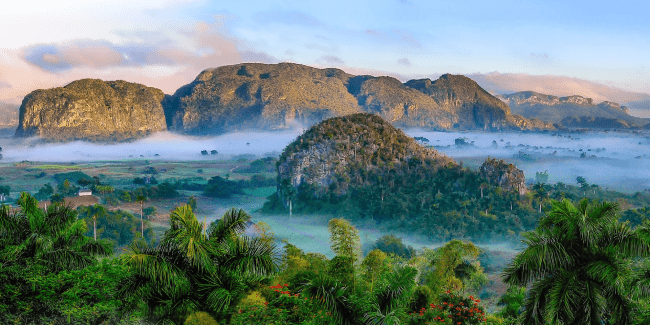
Cuba visa policy

Cuba Vaccination Requirements | Do I need a vaccine to travel to Cuba?

Cuba Covid Quarantine
Security Alert May 17, 2024
Worldwide caution.
- Travel Advisories |
- Contact Us |
- MyTravelGov |
Find U.S. Embassies & Consulates
Travel.state.gov, congressional liaison, special issuance agency, u.s. passports, international travel, intercountry adoption, international parental child abduction, records and authentications, popular links, travel advisories, mytravelgov, stay connected, legal resources, legal information, info for u.s. law enforcement, replace or certify documents.
Before You Go
Learn About Your Destination
While Abroad
Emergencies
Share this page:
Travel Advisory January 5, 2024
Cuba - level 2: exercise increased caution.
Reissued with updates to crime information.
Exercise increased caution in Cuba due to crime .
Country Summary: Petty crime is a threat for tourists in Cuba. Also, violent crime, including armed robbery and homicide, sometimes occurs in Cuba.
Travel outside of the Havana area for U.S. Embassy employees requires a special notification process which may affect the Embassy’s ability to provide emergency assistance to U.S. citizens in Cuba.
Read the country information page for additional information on travel to Cuba.
If you decide to travel to Cuba:
- Be aware of your surroundings.
- Do not physically resist any robbery attempt.
- Do not display signs of wealth, such as wearing expensive watches or jewelry.
- Enroll in the Smart Traveler Enrollment Program (STEP) to receive Alerts and make it easier to locate you in an emergency.
U.S. citizens should always exercise caution when traveling abroad:
- Follow the Department of State on Facebook and Twitter .
- Review the Country Security Report for Cuba.
- Prepare a contingency plan for emergency situations. Review the Traveler’s Checklist .
Embassy Messages
View Alerts and Messages Archive
Quick Facts
Must have six months validity at the time of entry.
Two pages are required for entry/exit stamps.
Yes. Travel to Cuba for tourist activities remains prohibited by statute. See 31 C.F.R 515.560 and OFAC's Frequently Asked Questions .
None. See CDC for recommendations.
U.S. credit and debit cards do not work in Cuba. You should bring U.S. dollars or Euros to Cuba and exchange them for Cuban Pesos (CUP) at authorized banks, CADECA offices, airports or hotels. Travelers should confirm alternative payment options before traveling, as policies concerning the use of U.S. dollars in Cuba are subject to change. The Cuban government requires that travelers declare cash amounts over the equivalent of 5,000 USD.
When departing Cuba, we advise U.S. travelers to spend or exchange CUP to a foreign currency well before reaching airport security checkpoints. Currency exchange houses in the departure area at airports are currently closed and Cuban pesos are not internationally convertible outside of Cuba.. International airlines flying to the United States include departure fees and taxes in the price of airline tickets. U.S. dollars are not accepted for payment of any additional products purchased at the airport. Under Cuban law, travelers may export up to the equivalent of 5,000 USD out of the country. Anyone wishing to depart Cuba with more than this amount of cash must demonstrate evidence that the currency was acquired legitimately from a Cuban bank.
Embassies and Consulates
U.S. Embassy Calzada between L and M Streets, Vedado, Havana, Cuba Telephone: + (53) (7) 839-4100 (Monday- Friday 0830-1630, except holidays) Emergency after-hours telephone: + (53) (7) 839-4100 and dial 1 to speak with the emergency operator Fax: + (53) (7) 839-4247 Website: https:cu.usembassy.gov
Email: [email protected] (for concerns with U.S. citizens)
Destination Description
Learn about the U.S. relationship to countries around the world.
Entry, Exit and Visa Requirements
Travel to Cuba from or transiting through the United States by persons under U.S. jurisdiction (defined as [BE1] U.S. citizens located anywhere, and anyone located in the United States regardless of citizenship and nationality) , is regulated by the Office of Foreign Assets Control (OFAC) of the U.S. Department of the Treasury. All travelers falling under U.S. jurisdiction must comply with these regulations. Individuals seeking to travel to Cuba are not required to obtain licenses from OFAC if their travel is covered under the 12 travel categories authorized by a general OFAC license. If travel is not covered by a general license, you must seek OFAC authorization in the form of a specific license . Travelers who fail to comply with regulations may face penalties and criminal prosecution. For travel-specific questions, please see 31 C.F.R. 515.560 and OFAC’s Frequently Asked Questions .
Visit the Embassy of Cuba website for the most current visa information.
Cuba requires visitors to have non-U.S. medical insurance, which is usually included in airline ticket prices on flights originating in the United States. If you do not have insurance, it can be purchased upon arrival to Cuba at an airport kiosk. Asistur Medical Insurance is the official company that airlines contract. Please confirm your coverage with your airline prior to arrival in Cuba and seek additional medical insurance if needed.
Cuba does not recognize the U.S. citizenship of Cuban-born U.S. citizens who maintain residency status in Cuba. The Cuban government requires Cuban dual nationals to enter and depart Cuba using Cuban passports. Cuban-born U.S. citizens who maintain their residency status in Cuba will be treated as Cuban citizens and may be subject to Cuban restrictions and legal obligations.
Some HIV/AIDS entry restrictions exist for visitors to and foreign residents of Cuba. Foreign students on scholarships are required to test for HIV/AIDS. Please verify this information with the Embassy of Cuba before you travel.
Information about dual nationality , the prevention of international child abduction , and customs regulations can be found on our websites.
Cuban Requirements for Authorized Travelers: Attempts to enter or exit Cuba illegally, or to aid the irregular exit of Cuban nationals or other persons, are prohibited. Entering Cuban territory, territorial waters, or airspace without prior authorization from the Cuban government may result in arrest. Immigration violators are subject to prison terms ranging from four to thirty years.
Temporary Sojourn License: Most aircraft and maritime vessels on temporary sojourn to Cuba are no longer eligible for an Aircraft, Vessels, and Spacecraft (AVS) License Exception. See 15 C.F.R. § 740.15. If you are planning to enter Cuba with a U.S. or foreign-registered aircraft or maritime vessel on temporary sojourn, you must meet the criteria set forth in 15 C.F.R. § 740.15. Please see the U.S. Department of Commerce’s Bureau of Industry and Security website for additional information.
In addition, a vessel of the United States, as defined in 33 C.F.R. §107.200, may not enter Cuban territorial waters without advance permission from the U.S. Coast Guard. The U.S. Coast Guard provides permission information at (305) 415-6920.
Safety and Security
The security environment in Cuba is relatively stable and characterized by a strong military and police presence. Demonstrations are infrequent but can draw violent responses from government forces. Even demonstrations intended to be peaceful can turn confrontational without warning. Avoid demonstrations and maintain security awareness at all times. Demonstration Alerts are posted on the Embassy’s website . Review the Cuba Travel Advisory .
The Cuban government has detained U.S. citizens suspected of engaging in activities perceived to undermine state security. The Cuban government may detain individuals for activities that would not be considered criminal or offensive in the United States.
Crime: With the recent influx of travelers, there has been an increase in the number of property crimes. Crimes of opportunity, such as pick pocketing, purse snatchings, and car break-ins, are on the rise. Exercise vigilance everywhere . Do not display large amounts of cash. Do not leave your valuables unattended. Carry money in your front pockets, hold your purse and cellular phone securely and be mindful of purses or bags when dining out.
- Do not leave a beverage unattended or accept beverages from persons unknown to you.
- Locations such as Habana Vieja, Playas del Este, Varadero, and other attractions tend to have a higher incidence of property crime than other parts of Cuba.
- Be wary of misdirection schemes where someone attempts to gain your attention while another comes from behind to steal your purse, wallet, or other valuable items.
- If confronted by criminals, do not resist, try to remain calm, clearly display your hands and do not make any sudden moves that could be interpreted as resistance.
- Carry a cell phone with Cuban cellular service for emergency communications and travel in groups if possible.
- Be aware of your surroundings, especially at night or when traveling in an unfamiliar area.
- While in your car, place valuables out of sight or in a locked trunk. When unattended, avoid leaving items in the car, especially on the seat or in plain view.
- Only use marked taxis.
- Carry a copy of your passport and secure the original.
- Beware of scam artists, who may speak English and appear friendly.
- When exchanging currency, use the state-run offices known as CADECAs or official banks.
International Financial Scams: See the Department of State and the FBI pages for information.
Victims of Crime: We strongly urge U.S. citizen victims of sexual assault to contact the U.S. Embassy for assistance. Report crimes to the local police by dialing 106 and contact the U.S. Embassy at +53 7839-4100. Remember that local authorities are responsible for investigating and prosecuting crimes.
See our webpage on help for U.S. victims of crime overseas .
We can:
- help you find medical care
- assist you in reporting a crime to the police
- contact relatives or friends with your written consent
- provide general information regarding the victim’s role during the local investigation and following its conclusion
- provide a list of local attorneys
- provide information on victim’s compensation programs in the U.S.
- provide an emergency loan for repatriation to the United States and/or limited medical support in cases of destitution
- help you find accommodation and arrange flights home
- replace a stolen or lost passport
Domestic Violence: U.S. citizen victims of domestic violence are strongly encouraged to contact the Embassy for assistance.
Tourism: The tourism industry is unevenly regulated, and safety inspections for equipment and facilities do not commonly occur. Hazardous areas/activities are not always identified with appropriate signage, and staff may not be trained or certified either by the host government or by recognized authorities in the field. In the event of an injury, even basic medical treatment is typically available only in/near major cities. First responders are generally unable to access areas outside of major cities and to provide urgent medical treatment. U.S. citizens should maintain health insurance in Cuba. If stays exceed 30 days, [CM1] U.S. citizens should purchase medical insurance when they process their visa extensions.
Local Laws & Special Circumstances
Criminal Penalties: You are subject to local laws. If you violate local laws, even unknowingly, you may be expelled, arrested, or imprisoned. Individuals establishing a business or practicing a profession that requires additional permits or licensing should seek information from the competent local authorities, prior to practicing or operating a business.
Furthermore, some laws are also prosecutable in the United States, regardless of local law. For examples, see our website on crimes against minors abroad and the Department of Justice website.
Arrest Notification: If you are arrested or detained, ask police or prison officials to notify the U.S. Embassy immediately. See our webpage for further information.
Cuban penalties for the following are particularly severe:
- Possession, use, or trafficking of illegal drugs.
- Suspicion of assisting Cubans to leave the country illegally.
- Drivers involved in accidents that result in injury or death, regardless of fault.
- Importing weapons or ammunition.
- Photographing military or police installations or personnel, or harbor, rail, or airport facilities.
- Crimes against minors.
The Government of Cuba does not recognize the U.S. citizenship of Cuban-born U.S. citizens who maintain residency in Cuba and may not allow U.S. consular access to Cuban-American prisoners.
Telecommunications: Many U.S. mobile service carriers provide roaming services in Cuba. Your U.S. mobile phone will work in Cuba if your mobile phone is capable of roaming in Cuba and your mobile service provider has an international roaming agreement with ETECSA, Cuba's state-owned telecommunications provider. Currently AT&T, Sprint, Verizon, and T-Mobile have roaming agreements with ETECSA. Wi-Fi is often slow and unreliable. Be sure to confirm your carrier’s coverage before traveling.
SIM cards with a data plan can be purchased at Havana-José Martí International Airport (HAV) and local ETESCA telecommunications offices. To ensure family and friends can reach you in Cuba, check with your mobile provider about roaming options and cost or purchase a Cuban SIM card. See the FCC Travel FAQs for more information.
Cuba-related Travel Transactions: Only persons whose travel falls into the 12 OFAC approved travel categories or who have received a specific license from OFAC are authorized by the U.S. Department of the Treasury to travel to, from, or within Cuba. Direct financial transactions with certain entities and sub-entities under the control of, or acting for or on behalf of, the Cuban military, intelligence, or security services are also generally prohibited. For more information see the Department of State’s Cuba Restricted List . Additionally, lodging, paying for lodging, or making reservations on behalf of others to lodge, at certain accommodations in Cuba are prohibited; for a full list of such accommodations, see the Cuba Prohibited Accommodations List . For more information about licenses, visit OFAC’s Cuba Sanctions website . Additionally, lodging, paying for lodging, or making reservations on behalf of others to lodge, at certain accommodations in Cuba are prohibited; for a full list of such accommodations, see the Cuba Prohibited Accommodations List . For more information about licenses, visit OFAC’s Cuba Sanctions website .
Licenses for Remittances: In June 2022, OFAC published updated Cuba-related regulations . The new regulations eliminated a cap on remittances to family members in Cuba, and authorized remittances to non-family recipients as well. Certain Prohibited Officials of the Government of Cuba , Prohibited Members of the Cuban Communist Party , and the close relatives of these two groups, are not eligible to receive remittances. For information on remittance authorizations, see OFAC’s Cuba Sanctions website .
What May Be Brought Back From Cuba: Importation of Cuban merchandise for commercial purposes is restricted, with very limited exceptions. Certain imports of goods produced by independent Cuban entrepreneurs are authorized, as set forth on the Department of State’s Section 515.582 List (see 31 C.F.R 515.582). There are no limits on the import or export of informational materials. For more information related to imports, including merchandise entering the United States for personal use as accompanied baggage, please see the CBP Public Notice .
Cuban law requires foreigners to obtain authorization to remove souvenir paintings and sculptures out of Cuba. Most authorized points of sale, such as galleries and art studios, should be familiar with this process and should provide the proper documentation at the time of purchase. You can also apply for an export permit via the Cuban Fund of Cultural Assets. Travelers without a valid export permit may have their items confiscated at the port of departure. The U.S. Embassy cannot assist in these cases. For more information, please contact the embassy of Cuba .
Travelers may purchase alcohol and tobacco products while in Cuba for personal consumption in Cuba, but may not enter the United States with alcohol and/or tobacco products acquired in Cuba. Persons subject to United States jurisdiction may purchase or acquire Cuban-origin merchandise for personal consumption, including alcohol and tobacco products, while in a third country, but may not import such products into the United States. For a complete description of what this general license authorizes and the restrictions that apply, see 31 CFR § 515.585(c) and (d).
Storm Season: Tropical storms and hurricanes between May and November can produce heavy winds and rain. See our page on disaster and crisis preparedness for more information.
Faith-Based Travelers: See the following webpages for details:
- Faith-Based Travel Information
- International Religious Freedom Report – see country reports
- Human Rights Report – see country reports
- Best Practices for Volunteering Abroad
LGBTI Travelers: There are no legal restrictions on same-sex sexual relations or the organization of LGBTI events in Cuba, and on September 26, 2022 Cubans passed the referendum legalizing same sex marriage.
See our LGBTI Travel Information page and section 6 of our Human Rights report for further details.
Travelers Who Require Accessibility Assistance . Individuals with mobility issues are likely to find accessibility difficult . Few facilities or services are available, and information is limited. Most roads and sidewalks are poorly maintained.
Students: See our Students Abroad page and FBI travel tips .
Women Travelers: See our travel tips for Women Travelers .
Currency Restrictions: Be advised that policies concerning the use and convertibility of U.S. dollars in Cuba are subject to change. Obtaining U.S. dollar cash is nearly impossible through official channels. The Cuban Central Bank prohibits certain U.S. dollar cash transactions, including conversion of U.S. dollars to Cuban pesos, the use of U.S. dollars for cash payments, including in government-run establishments such as hotels and restaurants, and the purchase of pre-paid debit cards.. U.S.-issued credit and debit cards do not work in Cuba. Travelers should bring sufficient cash for the duration of their trip, and consider bringing multiple currencies, such as Euros.
For emergency services in Cuba, dial:
- 104 for an ambulance or contact the nearest hospital directly
- 105 for fire
- 106 for police
Ambulance services are
- not present throughout the country or are unreliable in most areas
- not equipped with state-of-the-art medical equipment
- not staffed with trained paramedics and often have little or no medical equipment
Injured or seriously ill travelers may prefer to take a taxi or private vehicle to the nearest major hospital rather than wait for an ambulance.
We do not pay medical bills. Be aware that U.S. Medicare/Medicaid does not apply overseas. Hospitals and doctors in Cuba do not accept U.S. health insurance. Most hospitals require payment up front before services are rendered.
Medical Insurance: Ensure your airline ticket includes health insurance. Cuba requires all U.S. airlines departing the United States to pay for health insurance for each passenger. The health insurance from airlines is valid for 30 days upon your arrival in Cuba. If you are planning to stay in Cuba for more than 30 days, you will need to extend your coverage before you can extend your visa. It is important to keep a record of your arrival into Cuba, such as your airline ticket, so that the Asistur agency can coordinate with the hospital on payment MEDEVAC flights from Cuba are difficult to arrange, with costs starting at $15,000 U.S. dollars. Visit the U.S. Centers for Disease Control and Prevention for more information on type of insurance you should consider before you travel overseas.
We strongly recommend supplemental insurance to cover medical evacuation.
Ensure you have all medicine you require for your time in Cuba. Medicine (prescription and over the counter) is not readily available in Cuba. Always carry your prescription medication in original packaging, along with your doctor’s prescription. Check with the embassy of Cuba to ensure the medication is legal in Cuba. Note: This site is in Spanish only.
Diarrheal illness is common among travelers, even in luxury accommodations. Travelers should wash their hands, drink bottled water, and avoid street and undercooked food.
The following diseases are prevalent:
- Dengue Fever
- Hepatitis-A
- Traveler’s diarrhea
- Chikungunya
- Typhoid
- Rabies
- Zika Virus
Visit the U.S. Centers for Disease Control and Prevention website for more information about Resources for Travelers regarding specific medical issues in Cuba .
Vaccinations: Be up to date on all vaccinations recommended by the U.S. Centers for Disease Control and Prevention.
Further health information:
- World Health Organization
- U.S. Centers for Disease Control and Prevention (CDC)
The U.S. Embassy maintains a list of doctors and hospitals here . We do not endorse or recommend any specific medical provider or clinic.
Pharmaceuticals: Even the most common over the counter medications are unavailable in Cuba. Other medication, medical equipment or supplies are also unavailable on the island. If you are able to find medicine, exercise caution when purchasing medication overseas. Counterfeit medication may prove to be ineffective, the wrong strength, or contain dangerous ingredients. Medication should be purchased in consultation with a medical professional and from reputable establishments.
U.S. Customs and Border Protection and the Food and Drug Administration are responsible for rules governing the transport of medication back to the United States. Medication purchased abroad must meet their requirements to be legally brought back into the United States. Medication should be for personal use and must be approved for usage in the United States. Please visit the U.S. Customs and Border Protection and the Food and Drug Administration websites for more information.
Water Quality: Tap water is not potable. Bottled water is often unavailable for purchase and you should be aware that some restaurants and hotels serve tap water unless bottled water is specifically requested. Be aware that ice for drinks may be made using tap water.
General Health Issues
- There are severe shortages of food, potable water, medicine, medical supplies, etc. throughout Cuba.
- Visit the U.S. Centers for Disease Control and Prevention website for more information about Resources for Travelers regarding specific issues in Cuba.
Air Quality: Air pollution is a problem in several major cities in Cuba. Consider the impact seasonal smog and heavy particulate pollution may have on you and consult your doctor before traveling if necessary. Visit AirNow Department of State for information on air quality at U.S. Embassies and Consulates.
Travel and Transportation
Road Conditions and Safety: Road accidents, many involving pedestrians and bicyclists, are Cuba’s leading cause of death. Cuban authorities may prohibit drivers from leaving the country until claims associated with an accident are settled. Drivers found responsible for accidents resulting in serious injury or death may receive long prison sentences. U.S. citizen drivers are often found at fault for accidents they are involved in.
Drive with extreme care. Major streets are generally well-maintained, but secondary streets are not. Major potholes and obstacles are common on all roads. After heavy rains in 2022, several bridges collapsed. Damaged bridges may not be well marked.
Outside of major cities, avoid driving at night as many roads are unlit. Emergency lights or signals are rare, making it virtually impossible to detect hazards after dark. Street signage is insufficient and confusing. Many Cuban cars are old, in poor condition, and lack reliable safety equipment. Heed caution throughout the country as there are rolling blackouts which may leave streets dark and without traffic lights, even in major cities.
The principal Cuban east-west highway is in good condition but extends only part of the way from Havana to the eastern end of the island. Hazards – including unfenced livestock and farm vehicles – are common.
When traveling by road, you should carry a printed map of the area, as electronic (smartphone) maps frequently fail due to connectivity issues.
Traffic Laws: Speed limits are sometimes posted and passengers in automobiles are required to wear seatbelts, if available. All motorcyclists are required to wear helmets. Traffic from major roads generally does not stop when entering roundabouts. Use care at intersections: stop signs are often hard to see.
Public Transportation:
Buses designated for tourist travel, both between and within cities, generally meet international standards.
The public bus and rail system in Cuba is under-resourced and in poor condition. Public buses used by Cubans, known as "guaguas," are crowded, unreliable, and are sometimes preyed upon by petty criminals. There is a heightened threat of pickpocketing on crowded buses and trains. Embassy personnel are advised not to use public transportation.
Avoid using informal taxis or hailing private vehicles for rides as they are unregulated, the vehicles are often in disrepair, and usually do not have normal vehicle safety equipment such as seat belts and air bags. “Cocos,” smaller, yellow ball-shaped “tuk-tuk” style vehicles, are not safe, and the Embassy advises its personnel not to use them.
Rental car agencies provide roadside assistance to their clients as a condition of rental contracts. Travelers should not permit unauthorized persons to drive their rental vehicles.
See our Road Safety page for more information.
Aviation Safety Oversight: As there is no direct commercial air service to the United States by carriers registered in Cuba, the U.S. Federal Aviation Administration (FAA) has not assessed the government of Cuba’s Civil Aviation Authority under its International Aviation Safety Assessment program (IASA) for compliance with International Civil Aviation Organization (ICAO) aviation safety standards. Further information may be found on the FAA’s IASA website. The U.S. Embassy in Havana prohibits U.S. government personnel from using any commercial airline for domestic flights within Cuba due to safety concerns. The Embassy does not authorize government personnel to travel via Cubana Airlines.
Maritime Travel: Mariners planning travel to Cuba should also check for U.S. maritime advisories and alerts . Information may also be posted to the U.S. Coast Guard homeport website , and the NGA broadcast warn ings .
For additional travel information
- Enroll in the Smart Traveler Enrollment Program (STEP) to receive security messages and make it easier to locate you in an emergency.
- Call us in Washington, D.C. at 1-888-407-4747 (toll-free in the United States and Canada) or 1-202-501-4444 (from all other countries) from 8:00 a.m. to 8:00 p.m., Eastern Standard Time, Monday through Friday (except U.S. federal holidays).
- See the State Department’s travel website for the Worldwide Caution and Travel Advisories .
- Follow us on Twitter and Facebook .
- See traveling safely abroad for useful travel tips.
Review information about International Parental Child Abduction in Cuba . For additional IPCA-related information, please see the International Child Abduction Prevention and Return Act (ICAPRA) report.
Travel Advisory Levels
Assistance for u.s. citizens, learn about your destination, enroll in step.

Subscribe to get up-to-date safety and security information and help us reach you in an emergency abroad.
Recommended Web Browsers: Microsoft Edge or Google Chrome.
Check passport expiration dates carefully for all travelers! Children’s passports are issued for 5 years, adult passports for 10 years.
Afghanistan
Antigua and Barbuda
Bonaire, Sint Eustatius, and Saba
Bosnia and Herzegovina
British Virgin Islands
Burkina Faso
Burma (Myanmar)
Cayman Islands
Central African Republic
Cote d Ivoire
Curaçao
Czech Republic
Democratic Republic of the Congo
Dominican Republic
El Salvador
Equatorial Guinea
Eswatini (Swaziland)
Falkland Islands
France (includes Monaco)
French Guiana
French Polynesia
French West Indies
Guadeloupe, Martinique, Saint Martin, and Saint Barthélemy (French West Indies)
Guinea-Bissau
Isle of Man
Israel, The West Bank and Gaza
Liechtenstein
Marshall Islands
Netherlands
New Caledonia
New Zealand
North Korea (Democratic People's Republic of Korea)
Papua New Guinea
Philippines
Republic of North Macedonia
Republic of the Congo
Saint Kitts and Nevis
Saint Lucia
Saint Vincent and the Grenadines
Sao Tome and Principe
Saudi Arabia
Sierra Leone
Sint Maarten
Solomon Islands
South Africa
South Korea
South Sudan
Switzerland
The Bahamas
Timor-Leste
Trinidad and Tobago
Turkmenistan
Turks and Caicos Islands
United Arab Emirates
United Kingdom
Vatican City (Holy See)
External Link
You are about to leave travel.state.gov for an external website that is not maintained by the U.S. Department of State.
Links to external websites are provided as a convenience and should not be construed as an endorsement by the U.S. Department of State of the views or products contained therein. If you wish to remain on travel.state.gov, click the "cancel" message.
You are about to visit:

Tourist Visa Form for Cuba
Visiting Cuba and need a Cuban tourist visa form? Download a Cuban tourism visa form here.

The Cuban Tourist Visa for your Holiday or Visiting a Family
Applying for a Cuban Tourist visa is necessary when going on holiday trip or to meet a relative residing in Cuba.
Usually, a visitor can apply for the required Cuban tourist visa online/ at the nearest Cuban consulate in the country of your residence for a stay in Cuba of up to 3 months.
General Visa Requirements and Validity Period of Cuban Tourist Visa
Before applying for a tourist visa for Cuba, it is recommended you check whether you meet all the Cuban visa requirements.
A brief list of the most important requirements and conditions when obtaining the tourist visa for Cuba:
- You do not intend to conduct volunteer work that may otherwise be carried out by a paid worker in Cuba.
- You do not mean to join an employment relationship in Cuba.
- You do not mean to provide services to Cuban organisations (this is permitted with a Cuban work visa or business visa).
- You do not plan to offer or sell services or products to consumers in Cuba.
- You and your relative are not in debt to the Cuba Government.
- You do not present a risk to the health or safety and security of the people of Cuba.
- You are able to demonstrate that you have enough financial resources to pay for your trip and return from Cuba.
Do I need a Cuban tourist visa?
It depends upon your nationality and also the kind of travel document you are using to travel to Cuba.Please go here to find out if you require a Cuban visa.
Who can make an application for a Cuban tourist visa?
Anyone hoping to go on holiday to Cuba can make an application for a Cuban tourist visa.
There are several kinds of visa for Cuba which you can use as a traveller to Cuba. If you are uncertain which sort of Cuban tourist visa you require to apply, please get in touch with the closest Cuban visa office to get more information as aim of this page is to give you general guide when applying for Cuban tourist visa.
What type of Cuban visa do I require?
This depends upon 3 points:
- The citizenship according to your passport – If the citizenship according to the passport is from a nation that is on visa free travel to Cuba or eligible to obtain a visa on arrival in Cuba, then you may not require to make an application for a Cuban tourist visa before departure from your home country. Please click on this link to confirm if you require a Cuban visa.
- The timeframe of your visit in Cuba – If you want to remain in Cuba for a much shorter duration no more than ninety days, then you can obtain the Cuban tourist visa. If you want to stay longer, then get in touch with the nearest Cuban visa office to find the appropriate visa for your trip.
- The activities you want to execute in Cuba – If your sole reason of taking a trip is for vacation, then you can make an application for all types of Cuban tourist visas stated on this page.
General Visa Application Requirements to Obtain Cuban Tourist Visa
- Holiday visa Form for Cuba – Completed Cuban visa Form.
- Original and signed passport – The passport has to be valid for at least six months prior to going into Cuba and 3 months after departing Cuba. It has to contain at the very least 2 spare visa pages and can not be older than ten years.
- Passport type photo – Photo should be no older than six months and must be 35 x 40mm in width.
- Previous passport – Supply a previous passport if you had any.
- Previous visas – Copies of previous Cuban visas information if you had any.
- Flight tickets to Cuba – Reservation of return or round trip flight tickets. In some scenarios the Cuban visa office may request pre paid flight tickets to Cuba.
- Travel insurance policy – Proof of travel insurance with a minimum cover set by the Cuban consular office provided with the Certificate of Insurance coverage and the table of benefits. The travel insurance must cover the cost of repatriation for medical reasons and the Certificate of Currency should be issued by an insurance company. If you are thinking of utilizing your credit card travel insurance for your travel to Cuba, please contact Cuban embassy to learn more and travel insurance coverage requirements for the Cuban visa.
- Original financial institution declarations – Original bank statements for the last 3 months revealing enough funds to cover stay in Cuba. If statements are printed online then it needs to be Verified (stamped) by the financial institution representatives.
- Hotel Reservations in Cuba – Copy of confirmed hotel reservations including name of the applicant, name and address of the hotel, length of stay. In most situations, only bookings which are partially or completely pre-paid can be accepted.
- Work letter – This letter must be: original and signed letter from employer written on company letter head paper, verifying your ongoing employment, the status of employment, monthly income and annual leave. Also, please give your 3 most recent pay slips. If you are self-employed: give certified copies of business registration, income tax return.
- For students. Please supply the following:
- Evidence of current student status: Certificate of Enrollment.
- Original and signed letter from university written on university letter head paper, affirming ongoing enrolment, confirming the payment of tuition fees or any scholarships, and confirming term break.
- Insurance policy from Organisation/University – Supply a letter from the University stating the purpose, duration of travel and confirmation that you will be covered by the insurance coverage for the whole journey together with the Certificate of Currency and summary of benefits.
In general, visa applications for Cuban visa ought to be sent for a maximum of 6 months, and no behind 15 days, prior to the journey.
© 2021 Visa Application Form
- Terms and Conditions
- Privacy Policy
Visa Traveler
Exploring the world one country at a time
Philippines Tourist Visa: Requirements and Application Process
Published: July 6, 2024
A Philippines tourist visa is required only for a select few nationalities. These nationalities are highly scrutinized and must submit a long list of documents.
You can apply for a Philippines tourist visa only in the country where you are a legal resident by nationality or otherwise. If there is no Philippine embassy or consulate, you must apply at the nearest one with jurisdiction over your country. You cannot apply while traveling and in a different country.
QUICK SUMMARY:
- Who requires it: 39 countries
- Validity: 3 months (single-entry) or 6 months (multiple-entry)
- Allowed stay: 59 days
- Visa fee: 40 USD (single-entry) or 80 USD (multiple-entry)
- Processing time: 1 to 4 weeks
- Extensions: Allowed up to 36 months of stay in total
Read the Philippines Visa Guide to learn more about different visa options for tourists, their eligibility and requirements.
Table of Contents
Understanding philippines tourist visa.
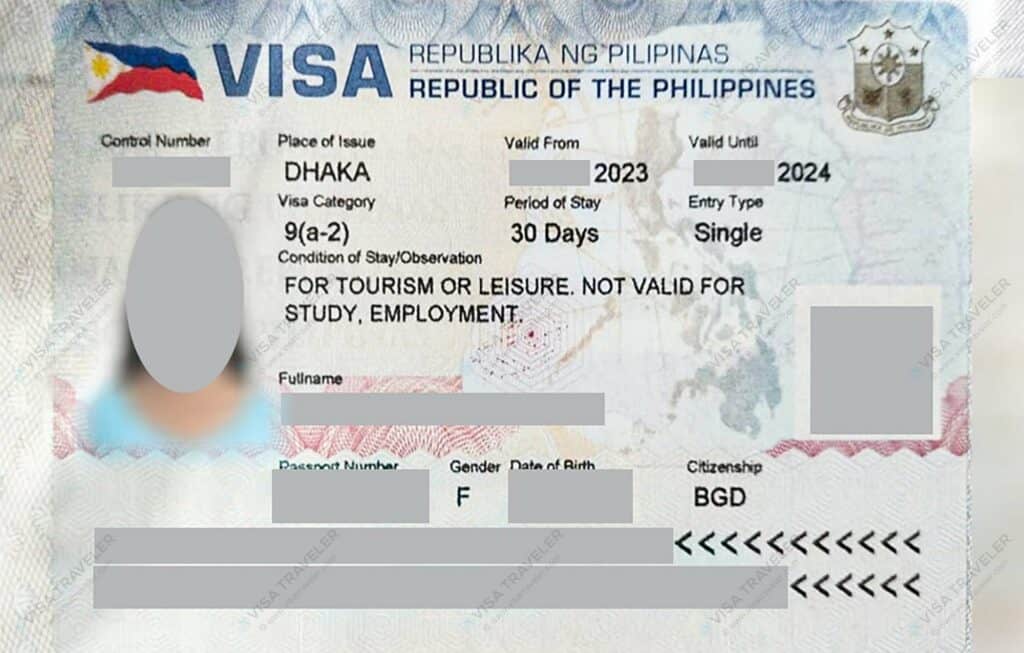
Tourist visa validity
The Philippines tourist visa validity depends on whether it’s a single-entry or multiple-entry visa.
NOTE: Multiple-entry visas may be granted only to foreign nationals affiliated with a Filipino citizen, or if you have family in the Philippines.
Duration of stay
Regardless of the visa type, the maximum allowed duration of stay in the Philippines is 59 days.
The day you enter is considered Day 0. The length of stay is calculated from the next day after the day of arrival. Technically, you will get 60 days of total stay.
If you want to stay longer than the allowed 59 days stay, you will have to extend your stay at the nearest Bureau of Immigration office.
Allowed number of entries
The single-entry tourist visa allows only one entry, whereas the multiple-entry visa allows unlimited entries into the Philippines during its validity.
Allowed ports of entry
You can enter the Philippines through any international airport or seaport.
When to apply
The processing times depend on the reviewing embassy and your individual circumstances. Usually, it’s around 1 to 4 weeks. Multiple entry visas take even longer to process. It’s wise to apply at least a month in advance.
To summarize:
- Latest to apply: 1 month before traveling
- Earliest to apply: 3 months before traveling
Tourist visa extension
All Philippines tourist visas can be extended for 1 or 2 months continuously up to 36 months. Check the Philippines Visa Extension guide for more information.
Philippines Tourist Visa Requirements

Who requires a tourist visa?
Nationals of the following countries require a tourist visa for the Philippines.
- Afghanistan
- Bosnia and Herzegovina
- North Korea
- North Macedonia
- Sierra Leone
- South Sudan
- Timor-Leste
Visa-exempt nationalities can also apply for a tourist visa if they wish to stay longer than 30 days in the Philippines. However, it’s usually easier (although not cheaper) to enter on visa exemption and apply for an extension within the country instead.
Documents required
The documents required for the tourist visa differ between embassies. In general, you need the following documentation.
- Original passport
- Photocopy of the passport biodata page
- Recent passport-size photo
- Completed tourist visa application form
- Flight itinerary or reservation
- Hotel accommodation reservation
- Bank statements for the last 6 months
- Employment certificate/letter
- Business registration/license (if business owner or self-employed)
- Property documents
- Proof of legal status/residency if you’re applying in a country different from your nationality.
- Copy of latest latest Philippine visa issued (if held a previous Philippine visa)
Employment certificate
- Police clearance certificate (only required by some Philippine embassies)
NOTE: Documents not in English must be translated into English and certified.
Passport requirement
To apply for a Philippines tourist visa, your passport must be valid for at least 6 months beyond the authorized period of stay in the Philippines.
A tourist visa usually allows up to 59 days of stay. That means, your passport must be valid for at least 6 months plus 59 days (total about 8 months) at the time of entering the Philippines on a tourist visa.
Philippine tourist visa is a full-page sticker, so your passport must contain at least two blank pages. One page is for the visa sticker, and one is for entry and exit stamps.
Photo requirements
You need one or two passport-size photos depending on the embassy. The photo should meet the following requirements.
- Must be of size 3.5cm x 4.5cm or 4cm x 6cm or 2inch x 2inch (depending on the embassy)
- Must be in color on a white background
- Must have taken recently within the last 6 months
- Must show a clear front view of the face
- No eyeglasses and no sleeveless shirts
- No blurred or low-quality photos
Tourist visa application form
You must complete the tourist visa application form on the Online Visa Appointment System (OVAS) . After completing it, you must print and sign it.
However, the OVAS has been down since May 2024. The Philippines Department of Foreign Affairs instructs applicants to fill out the application forms manually. That means, you will have to download the form from the embassy website, fill it out and submit it along with the required documents at the embassy. See the list of Philippine Overseas Missions here .
Flight itinerary
You must provide a flight itinerary for entering and leaving the Philippines. This can be a simple flight reservation for the visa application . Philippine embassies recommend not purchasing flight tickets before the visa is approved.
The Philippines embassy says:
“Applicants are reminded NOT to finalize the booking of your tickets, prior to the approval of your visa applications. You may submit a flight itinerary temporarily created by booking a reservation with an airline.”
I recommend using a dummy ticket service provider to obtain a flight itinerary for your Philippines tourist visa.
If you are a Visa-Required national, then the flight ticket out of the Philippines must be within 30 days of entry. For Visa-Exempt nationals, the exit flight can be within 59 days of entry.
Hotel reservation
You must submit hotel bookings for your entire stay in the Philippines. Again, the Philippines embassies recommend not paying for the hotels. You can simply book refundable and pay-at-check-in hotels for your visa application. Read this hotel reservation for visas guide to learn more.
Bank statements
Bank statements must be for the last 6 months with a minimum average balance of at least 1,500 USD.
If applying from a developing country such as India or Bangladesh, these bank statements must be signed and stamped by the bank officer verifying their authenticity.
If applying from a developed country such as the US or UAE, these can be statements downloaded from your bank’s website. No sign or stamp from the bank is necessary.
The employment letter or certificate must include your remuneration (monthly or annual salary), job title or position, period of employment and no objection to your travel to the Philippines (NOC), etc.
If NOC is not included in the employment letter, a separate NOC or leave approval letter must be submitted.
The fee for 3-month single-entry visas is 40 USD. For Visa-Exempt nationals, it’s 30 USD.
The fee for 6-month multiple-entry visas is 80 USD. For Visa-Exempt nationals, it’s 60 USD.
The currency and mode of payment depend on the embassy. Philippine embassies in countries like the US or the UK accept card and cash payments. Whereas the Philippine embassies in India or Bangladesh, etc, require bank drafts in local currencies.
Processing time
The Philippines tourist visa processing time varies between embassies. It can take anywhere from 1 week to 3 weeks.
Applications from some nationalities deemed as high-risk are sent to the Department of Foreign Affairs in Manila in which case it may take up to a month.
The embassy may request additional documents at any time during the process, in which case, the processing time resets. The processing time will restart from the day you submit the additional documents to the embassy.
Keep in mind that any public holiday in the Philippines is also a holiday at the Philippines embassy or consulate. This can further delay the processing.
If you account for weekends, public holidays in the country of application, and public holidays in the Philippines, you are left with limited working days. If you were requested for additional documents and there are major holidays in the Philippines, it can take several weeks.
Tourist Visa Application Process
How to apply for philippines tourist visa, step 1: pre-assessment.
Some Philippine embassies such as the ones in UAE, Vietnam, etc. require pre-assessment of your visa application to determine your eligibility.
You will have to email digital copies of all the required documents to the embassy. The embassy will then assess if you are eligible for the visa. Then you will be sent instructions on how to and when to submit the visa application.
Step 2: Online visa application
You have to fill and submit the tourist visa application on the Online Visa Appointment System (OVAS) . However, the visa appointment system has been down since May 2024.
This means that you must apply in person at the nearest Philippine embassy or consulate .
Step 3: Submit the application at the Philippines Overseas Mission
The process at the embassy is usually as simple as submitting the documents and then waiting. You may get contacted for additional documents.
Here are a few notes to keep in mind:
- Look for the visa application form on the embassy’s webpage. Download, print, and fill it out.
- Check if the embassy requires you to book an appointment or if walk-ins are also allowed.
- Prepare all documents. Make copies of originals. Most embassies will have a pre-authorization of some sort to confirm you have all the documents before proceeding with the application.
- See if the embassy wants you to bring the documents in person or if you can send them via a courier.
- Don’t pay for flight tickets before the visa is issued. Visas will never be expedited to match your travel schedule and you won’t be reimbursed for flights if the visa is not issued.
When your visa is approved, you will informed through email. You will have to go back to the embassy to pick up your passport with the visa.
Entry Procedure at the Border
Pre-requisite: passport and visa.
Make sure your passport is valid for at least 6 months beyond your allowed stay of 59 days (about 8 months total). And, your tourist visa is still valid.
Within 72 hours hours before arrival: eTravel Registration
Make sure to fill out your Philippine eTravel registration within 72 hours (3 days) before arrival in the Philippines. You will have to present the QR code to check in and at the immigration in the Philippines.
At the airport: Immigration
Proceed directly to immigration. The border officer may ask you any number of questions about your stay in the Philippines. You may be asked to show proof of return or onward ticket .
You will receive a stamp allowing you to stay for 59 days.
Frequently Asked Questions
Is there an interview for the philippine tourist visa.
Generally, no, there is no interview for the Philippines tourist visa. However, some may be requested to attend an interview by the embassy.
How much is the bank balance required for a Philippine visa?
Not all Philippine embassies clearly specify the required bank balance for the visa. Some do and it’s all over the place. For example, the Philippine embassy in Abu Dhabi, UAE requires at least 5,000 AED (about 1,350 USD) and the one in Cairo, Egypt requires 3,000 USD.
If the Philippine embassy that you will be applying from does not specify, have at least 1,500 USD in your bank account to increase your chances of visa approval.
Is Philippines visa easy to get?
The visa process itself is relatively easy. It’s just a matter of diligently gathering all required documents. It’s also a matter of patience and being flexible with your travel dates.
WRITTEN BY THIRUMAL MOTATI

Thirumal Motati is an expert in tourist visa matters. He has been traveling the world on tourist visas for more than a decade. With his expertise, he has obtained several tourist visas, including the most strenuous ones such as the US, UK, Canada, and Schengen, some of which were granted multiple times. He has also set foot inside US consulates on numerous occasions. Mr. Motati has uncovered the secrets to successful visa applications. His guidance has enabled countless individuals to obtain their visas and fulfill their travel dreams. His statements have been mentioned in publications like Yahoo, BBC, The Hindu, and Travel Zoo.
PLAN YOUR TRAVEL WITH VISA TRAVELER
I highly recommend using these websites to plan your trip. I use these websites myself to apply for my visas, book my flights and hotels and purchase my travel insurance.
01. Apply for your visa
Get a verifiable flight itinerary for your visa application from DummyTicket247 . DummyTicket247 is a flight search engine to search and book flight itineraries for visas instantly. These flight itineraries are guaranteed to be valid for 2 weeks and work for all visa applications.
02. Book your fight
Find the cheapest flight tickets using Skyscanner . Skyscanner includes all budget airlines and you are guaranteed to find the cheapest flight to your destination.
03. Book your hotel
Book your hotel from Booking.com . Booking.com has pretty much every hotel, hostel and guesthouse from every destination.
04. Get your onward ticket
If traveling on a one-way ticket, use BestOnwardTicket to get proof of onward ticket for just $12, valid for 48 hours.
05. Purchase your insurance
Purchase travel medical insurance for your trip from SafetyWing . Insurance from SafetyWing covers COVID-19 and also comes with a visa letter which you can use for your visas.
Need more? Check out my travel resources page for the best websites to plan your trip.
LEGAL DISCLAIMER We are not affiliated with immigration, embassies or governments of any country. The content in this article is for educational and general informational purposes only, and shall not be understood or construed as, visa, immigration or legal advice. Your use of information provided in this article is solely at your own risk and you expressly agree not to rely upon any information contained in this article as a substitute for professional visa or immigration advice. Under no circumstance shall be held liable or responsible for any errors or omissions in this article or for any damage you may suffer in respect to any actions taken or not taken based on any or all of the information in this article. Please refer to our full disclaimer for further information.
AFFILIATE DISCLOSURE This post may contain affiliate links, which means we may receive a commission, at no extra cost to you, if you make a purchase through a link. Please refer to our full disclosure for further information.
MORE VISA GUIDES

UNITED KINGDOM

VIEW ALL VISA GUIDES
- Cookie Policy
- Copyright Notice
- Privacy Policy
- Terms of Use
- Flight Itinerary
- Hotel Reservation
- Travel Insurance
- Onward Ticket
- Testimonials
Search this site
- Hi, My Account Subscriptions --> My KT Trading Contact Us Privacy Notice Sign Out
Sat, Jul 06, 2024 | Muharram 1, 1446
Dubai 20°C
- Expo City Dubai
- Emergencies
- Ras Al Khaimah
- Umm Al Quwain
- Life and Living
- Visa & Immigration in UAE
- Banking in UAE
- Schooling in UAE
- Housing in UAE
- Ramadan 2024
- Saudi Arabia
- Philippines
- Cryptocurrency
- Infrastructure
- Currency Exchange
- Horse Racing
- Local Sports
Entertainment
- Local Events
Dubai World Cup
- Track Notes
- Big Numbers
- Daily Updates
- Arts & Culture
- Mental Health
- Relationships
- Staycations
- UAE Attractions
- Tech Reviews
- Motoring Reviews
- Movie Reviews
- Book reviews
- Restaurant Reviews
- Young Times
Supplements
- Back To School
- Eid-Al-Adha
- It’s Summer Time
- Leading Universities
- Higher Education
- India Real Estate Show
- Future Of Insurance
- KT Desert Drive
- New Age Finance & Accounting Summit
- Digital Health Forum
- Subscriptions
- UAE Holidays
- Latest News
- Prayer Timings
- Cinema Listings
- Inspired Living
- Advertise With Us
- Privacy Notice
KT APPDOWNLOAD

UAE: Travelling to South Korea? How to get a tourist visa
This entry permit can be issued for three months, six months and five years, depending on the chosen type.

Laraib Anwer
- Follow us on

Top Stories

Dubai: Sheikh Mohammed announces Dh30-billion rain drainage network

Paid parking in Dubai: Residents face up to Dh4,000 extra yearly costs when new rates kick in

UAE: Worker wins Dh1 million in National Bonds draw after saving Dh100 every month

Published: Tue 2 Jul 2024, 6:52 PM
Last updated: Tue 2 Jul 2024, 10:15 PM
From Kpop music to hydrating skincare and delicious snacks, the Korean craze has taken over. Whether you plan to attend your favourite band's concert or enjoy the scenic views of South Korea's many islands, travelling to the country from the UAE has become an easy process.
Travellers going for tourist purposes must apply for the C-3-9 tourist visa. This type of permit is also known as the 'short term tourist visa'.
This visa can be issued in single entry, which is valid for three months, double entry, which is valid for six months and multiple entry, which is valid for five years.
Stay up to date with the latest news. Follow KT on WhatsApp Channels.
From required documents to booking an appointment, here's a complete guide for residents planning a trip to South Korea.
Documents required
- Visa Application form: This form is available on the country's visa portal (www.visa.go.kr). Applicants must fill out the form online and submit the required documents mentioned throughout the form. They must keep a hard copy of the same.
- Applicants must provide their original passport as well as a copy. It must be valid for six months from the travel date.
- Applicants must provide a copy of the UAE residence visa. This should also be valid for six months from the travel date. Those who have a virtual visa stamp must keep a soft copy as well as a printed version. Visa holders from Al Ain and Abu Dhabi are required to apply through Abu Dhabi's embassy.
- Applicants must provide their original Emirates ID, as well as a copy of it.
- Residents who hail from the following countries must provide an original as well as copy of their previous visa to prove they have resided in the country for the past two years. These countries are: Afghanistan, Bangladesh, Cameroon, China, Cuba, Egypt, Gambia, Ghana, India, Indonesia, Iran, Iraq, Kazakhstan, Kosovo, Kyrgyzstan, Macedonia, Mongolia, Myanmar, Nepal, Nigeria, Pakistan, Palestine, Peru, Philippines, Senegal, Somalia, Sri Lanka, Sudan, Syria, Thailand, Ukraine, Uzbekistan, Vietnam and Yemen.
- An original bank statement has to be submitted. This must be of the latest three months before applying and should have a bank stamp. The statement should be issued within the last two weeks of travelling. Applicants with a financial sponsor must add a letter of financial support along with the passport copy of the sponsor and a proof of relationship.
- A 'no objection' letter must be provided by the applicant's sponsor that clearly mentions the purpose of visit, includes the applicant’s full name, passport number, nationality, position and salary. It should also have the name of the authorised signatory, contact information and job title, along with an original stamp and signature. Those who are not on a company's visa must provide their sponsor’s passport copy along with the letter.
- A detailed schedule of stay is required to be submitted. This is an itinerary that lists out the activities, dates, accommodations and contact numbers.
- A two-way ticket has to be booked and provided.
- Proof of hotel booking in South Korea needs to be provided.
After submitting the e-visa form, applicants have to book an appointment with the Consulate General of the Republic of Korea in Dubai. This can be done online through the '365 Overseas Korean Portal' (www.g4k.go.kr).
They can do so by clicking on the 'reservation to diplomatic mission'. Applicants are required to become a member or log in and then based on the availability, book an appointment.
After the appointment has taken place, it usually takes up to 14 business days for the processing. Applicants can check their visa status online. After the visa has been approved, it can be collected from the Korean embassy.
The visa fees for most nationalities is Dh160 for single entry, Dh280 for a double entry visa and Dh360 for a multiple entry visa for less than 90 days.
Those applying for more than 90 days have to pay Dh240 for a single entry visa, Dh280 for a double entry visa and Dh360 for a multiple entry visa.
For certain nationalities these costs may differ. These are mentioned on the consulate's website.
It is important to note that only cash is accepted for payment.
- South Korea to issue new work visa scheme, K-culture training permit this year
- Got UAE stopover? Guide to leaving bags at Dubai, Abu Dhabi airports
- Newsletters
- [email protected]
More news from Life and Living
life and living
UAE: How to renew Russian passport, all you need to know
For Russians in the country, the process of getting a passport renewed is relatively simple and straightforward
life and living 2 weeks ago -->
How to bring medicines into the UAE: Step-by-step guide for residents, visitors
It's essential to be aware of local medication laws when travelling to the UAE, as non-compliance can lead to serious consequences
UAE: Loud neighbours or construction disturbing you? Here's how to file a noise complaint
In Dubai, any noise that is louder than normal conversation or the hum of an air conditioner can be reported
life and living 3 weeks ago -->
UAE: Need a loan? How to check and improve your credit score
From cost to process to raising complaints, here's all you need to know
UAE: Want to set up a clinic? Here's how to obtain the licence
A guide on the documents required, process and fees for different types of medical facilities
UAE labour law: 6 salary payment options and how wages can be paid
This flexibility ensures that the rights of all parties are protected while maintaining a fair working relationship
From scammers to 'creeps': Dubai residents trying to find love on dating apps say struggle is real
One of the biggest grievances on the platforms centred around people being unsophisticated — or downright crass
Dubai: Forget your Nol card at home often? Digitise it in 6 steps
If you have a Samsung phone, then you should be able to digitise your card and pay through your phone
life and living 4 weeks ago -->
Type your keywords

IMAGES
VIDEO
COMMENTS
Welcome. Welcome to the Online Visa Application System of the Republic of Cuba. Please, find the country where you are to fill out your application. Country where you are. Algeria. Angola. Antigua and Barbuda. Argentina. Australia.
For most European citizens, a valid passport is required during your stay in Cuba. Some countries, like Spain, require the passport to be valid for at least 6 months. It's also important to note that if you plan to travel to the United States after visiting Cuba, you'll need a visa. This is because the electronic system for travel authorization ...
Is the Tourist Visa Application Form online only? The safest and fastest way to complete the Cuba Tourist Visa Application Form in online from our website - visacuba.com. However, if you'd like to apply in person, feel free to make an appointment and visit our offices in Crystal Palace (Foresters Hall, 25-27 Westow Street, London, SE19 3RY)
Travelers to Cuba require a visa, also known as a Cuban Tourist Card. If you are flying from the USA, the U.S. air carrier will have these visas available for sale in the boarding area, at a price ranging from $50-$100. It's also legal to fly through another country like Canada or Mexico. In that case you can also obtain the visas at the airport.
It is not valid for other travel purposes. DATE: SIGNATURE: The requirements for the tourist visa are as follow: 1. Completed and signed application form. 2. Flight Confirmation (inbound & outbound). 3. Accommodation booking for all the staying in Cuba. 4. Last three months's bank statement. 5. Passport valid for 6 months at the time of ...
A Cuba Tourist Card, also known as a Cuban Tourist Visa, is an official document that grants visitors the legal permission to enter and stay in Cuba for a specified period. ... Complete the Application Form: Fill out the application form provided by the travel agency. Double-check all the information for accuracy and completeness before ...
Anyone who travels to Cuba for tourism purposes has to get a Cuba Tourist Visa, which is also known as a Cuba Tourist Card. As the name suggests, the Cuban Tourist Card ( Tarjeta de Turismo) is a document which is separate from your passport. It is not affixed in your passport - it actually comes in the form of a card, either in a light green ...
Determine the method of application: You have a few options for applying for a Cuban Tourist Visa. You can obtain it through an airline or travel agent when booking your flights to Cuba, apply directly at the Cuban Embassy or Consulate in your country, or utilize the services of a third-party visa provider.
Forms can be submitted by post or in person. Gather all supporting documents. Applicants should ensure they have all the required documents to include with their visa application. Pay the visa fee. The payment method will depend on the Consulate of Cuba where the applicant submits their visa application. Submit the application.
The Cuba tourist visa is also known as a Cuba Tourist Card. If you are from a Cuba-visa required country, you have to get the tourist card before you travel. You can get the Tourist Card at a Cuban consulate, through a travel agency, through an authorized visa application agency, as well as at some airports. If you are not from a visa-required ...
Delta: The Cuban tourist visa from Delta costs $85 and can be purchased during check-in or at your departure gate. Copa Airlines: The Cuban tourist visa from Copa Airlines costs either $20 or $30, depending on your departure airport. Air Canada: Air Canada is an airline that includes the cost of the Cuba visa in the price of its ticket.
At the airport before you are scheduled to travel to Cuba, although not all airports offer this service. Keep in mind: When you submit your Cuba visa application, you have to pay a Cuba visa fee, either in cash or through a bank transfer, depending on the specific consulate's requirements. The fee prices range from $25 to $75 but if you apply ...
Important Note on Travel Itinerary: If you are travelling via the USA you need a different (pink) tourist visa. This can be purchased at the airport in the USA not in Norway. Date of arrival in Cuba (d,m.y) Note: A tourist card is valid for a 90-day stay in Cuba. A single 90-day extension is possible on request in Cuba.
First, you need to know that anyone wish to come to Cuba as a tourist must have a valid ID number, health insurance and a visa, because the identity card is not enough for the entry. Your passport must be valid for at least six months at the time of entry. Passport control: Entering Cuba. If it's not, you can just get a temporary one and ...
Citizens of some Caribbean, Asian and European countries, including Russia, Montenegro, Serbia and Singapore, can travel visa-free to Cuba for up to 90 days with a passport that doesn't expire for at least six months. Passport holders from all other countries must purchase what is known officially as a Cuba Tourist Card, although it's often ...
Complete the visa application form. Application forms can be found on the relevant embassy website and must be completed with accurate and up-to-date personal and travel information. Gather all required documents. Applicants must have all the required documents prepared to send by post or submit in person with their visa application.
The Embassy of Cuba 2630 16th St NW, Washington, DC 20009 Telephone: (202) 797-8518. It is important to note that most consulates and embassies are only open to the public during the morning hours. Please take these hours into consideration when contacting the consulate about your visa application.
Step 1: Go to this site https://dviajeros.mitrans.gob.cu/inicio. You can only fill in this form 48hrs prior to departure so don't even try beforehand! The first screen you'll see looks like this:
Cuba visas are divided based on the purpose of your travel. As such, the most common types of visas for Cuba are: Cuba Tourist Visa (Tourist Card), which is issued to foreign nationals who wish to enter the country for tourism purposes. Cuba Family Visa (A-2), which is issued to foreign nationals who wish to enter Cuba in order to join a family ...
Travel to Cuba for tourist activities remains prohibited by statute. However, the Department of Treasury's Office of Foreign Assets Control (OFAC) has issued general licenses for 12 categories of travel. ... To apply for a Cuban visa or for any questions regarding Cuban consular services, please contact the Cuban Embassy in Washington, D.C ...
The application process is straightforward. All you need to do is fill out an online form, upload your supporting documents and pay for your visa. In the online application form, you will be required to provide personal information, details of your trip, and contact information like an email address and phone number.
Call us in Washington, D.C. at 1-888-407-4747 (toll-free in the United States and Canada) or 1-202-501-4444 (from all other countries) from 8:00 a.m. to 8:00 p.m., Eastern Standard Time, Monday through Friday (except U.S. federal holidays). See the State Department's travel website for the Worldwide Caution and Travel Advisories.
General Visa Application Requirements to Obtain Cuban Tourist Visa. Holiday visa Form for Cuba - Completed Cuban visa Form. Original and signed passport - The passport has to be valid for at least six months prior to going into Cuba and 3 months after departing Cuba. It has to contain at the very least 2 spare visa pages and can not be ...
Cuba is just 103 miles from the tip of Florida making it the ideal winter getaway for sun-seeking Americans. However, the U.S. imposed restrictions on travel to Cuba in 1963 and while the level of ...
Tourist visa application form. You must complete the tourist visa application form on the Online Visa Appointment System (OVAS). After completing it, you must print and sign it. However, the OVAS has been down since May 2024. The Philippines Department of Foreign Affairs instructs applicants to fill out the application forms manually.
Visa Application form: This form is available on the country's visa portal (www.visa.go.kr). Applicants must fill out the form online and submit the required documents mentioned throughout the form.